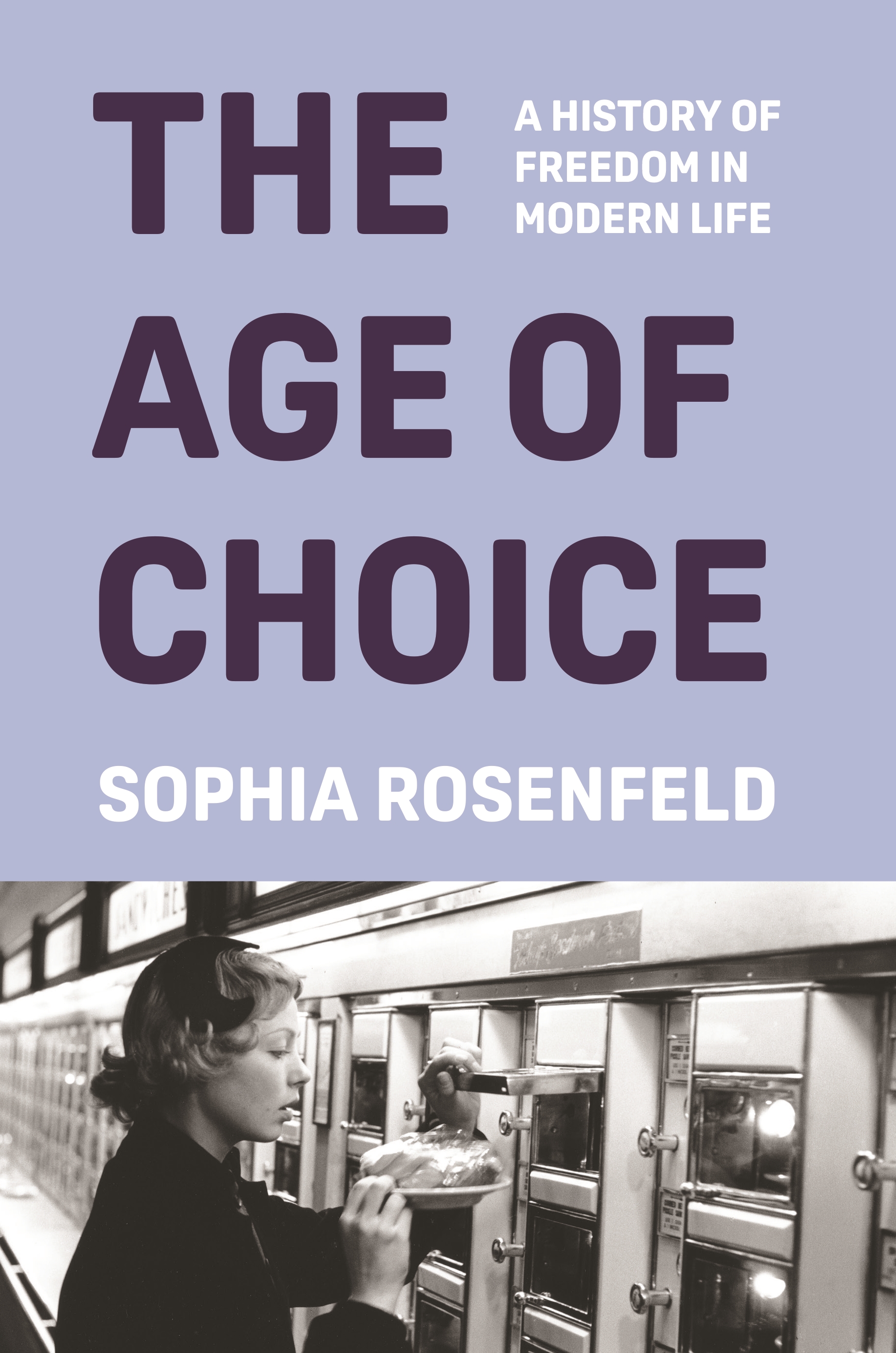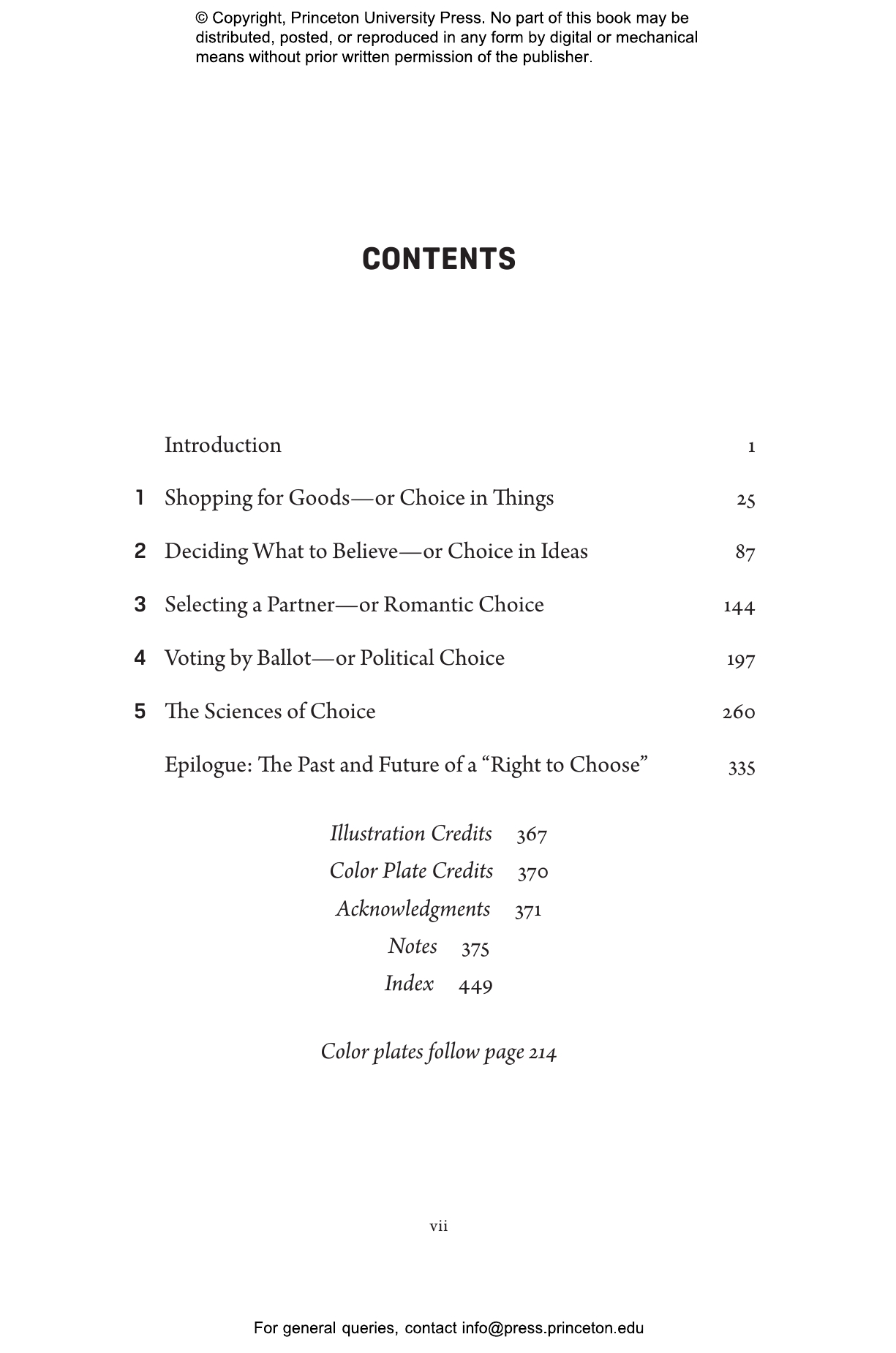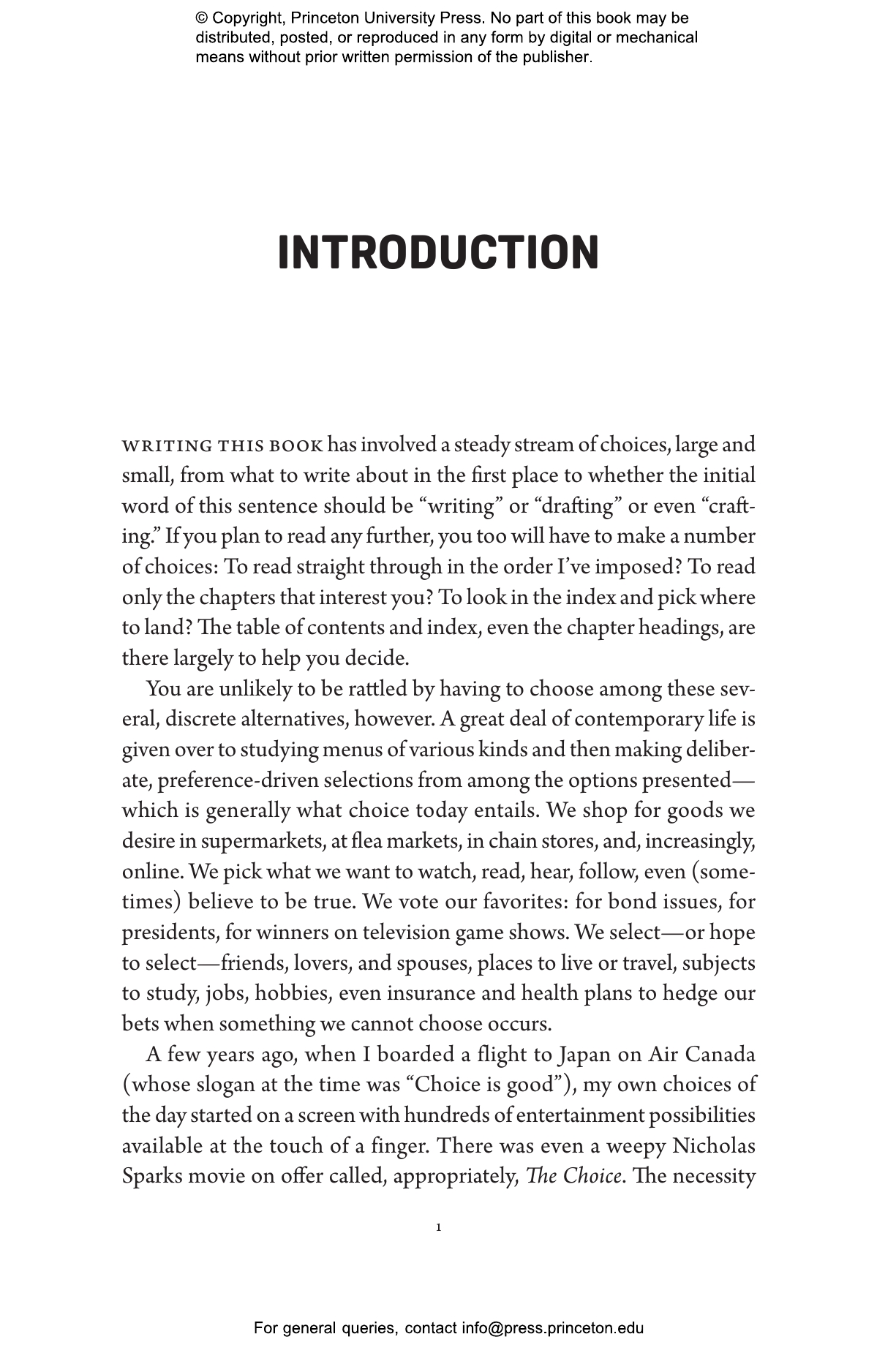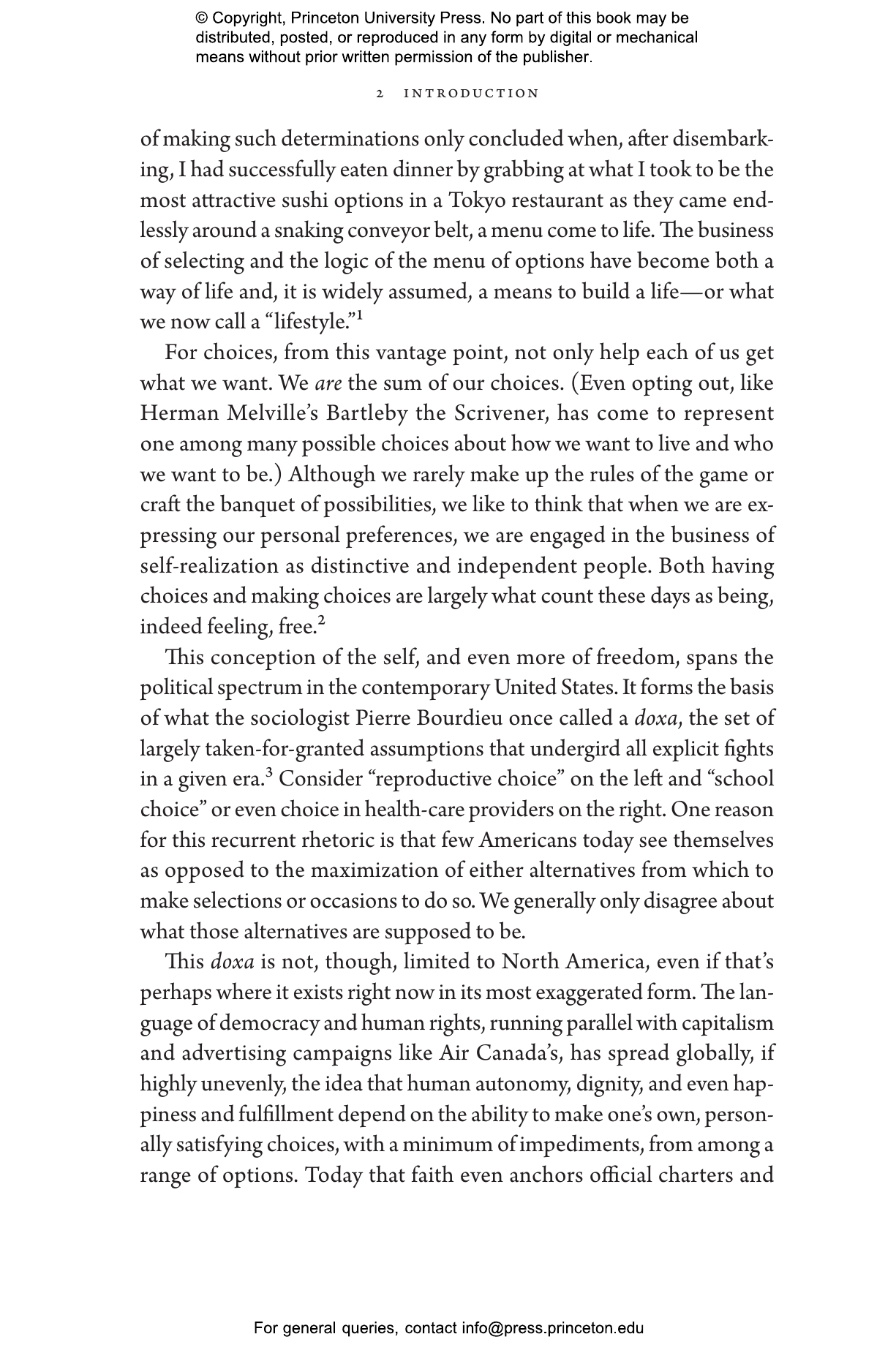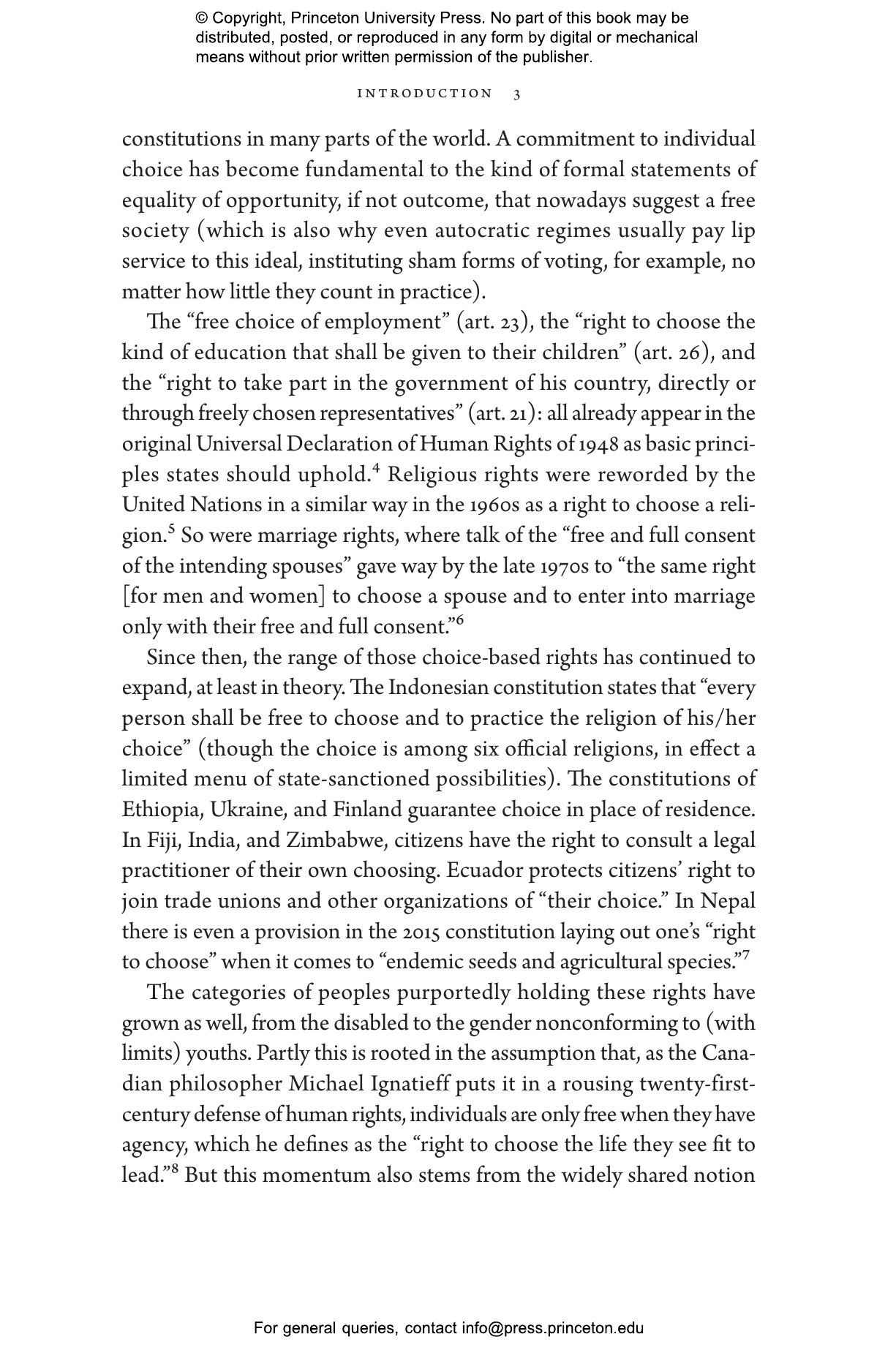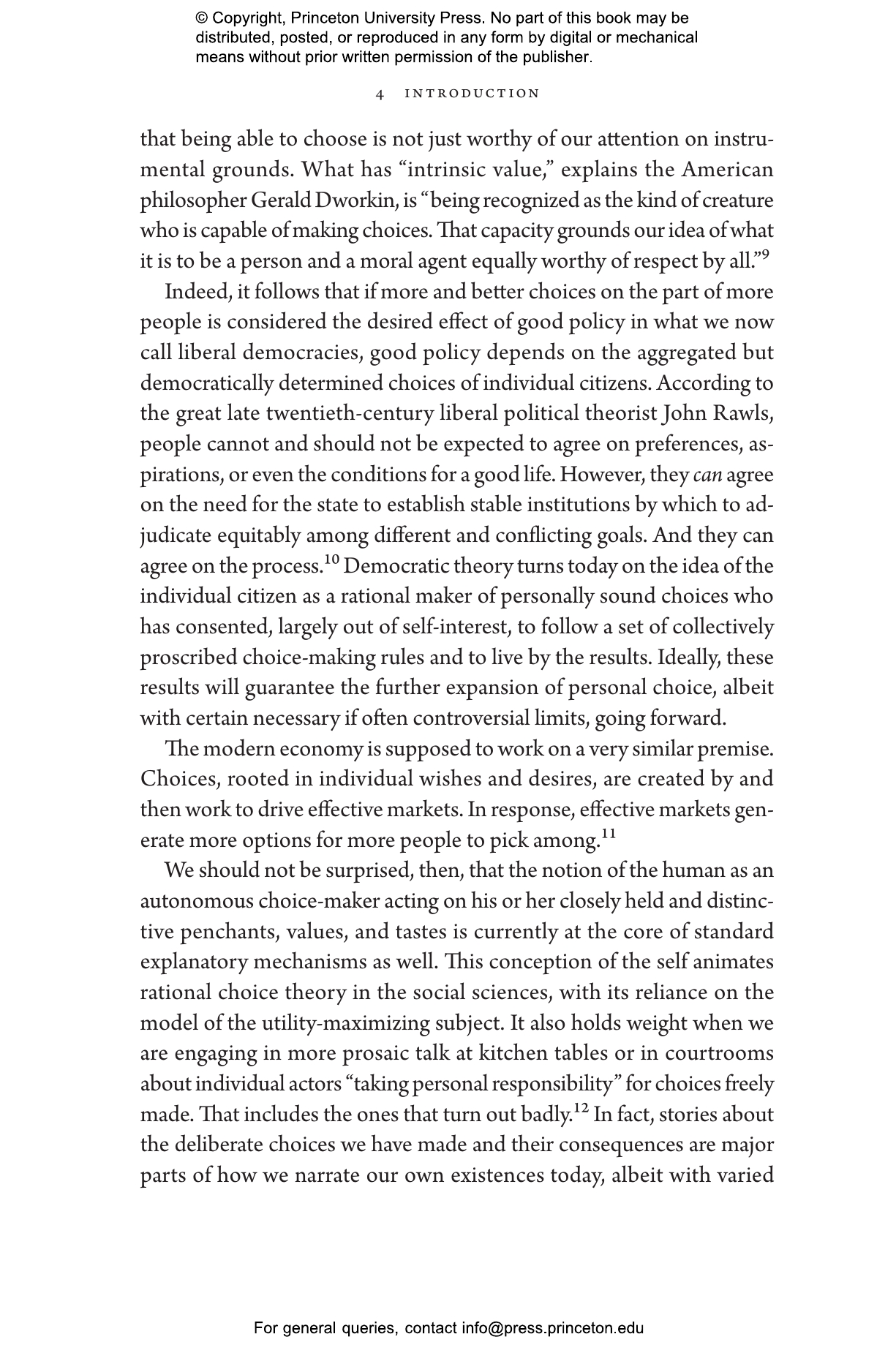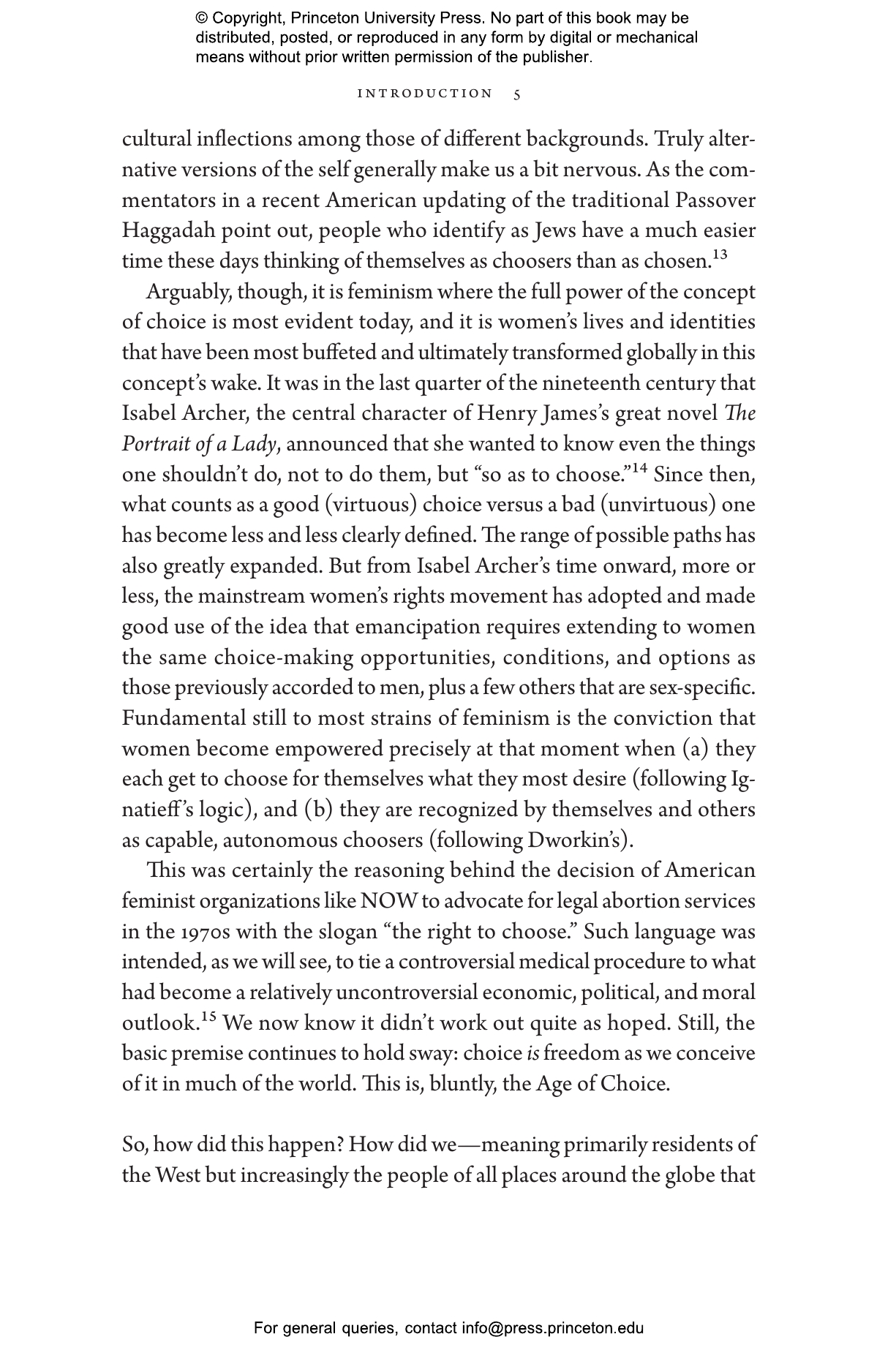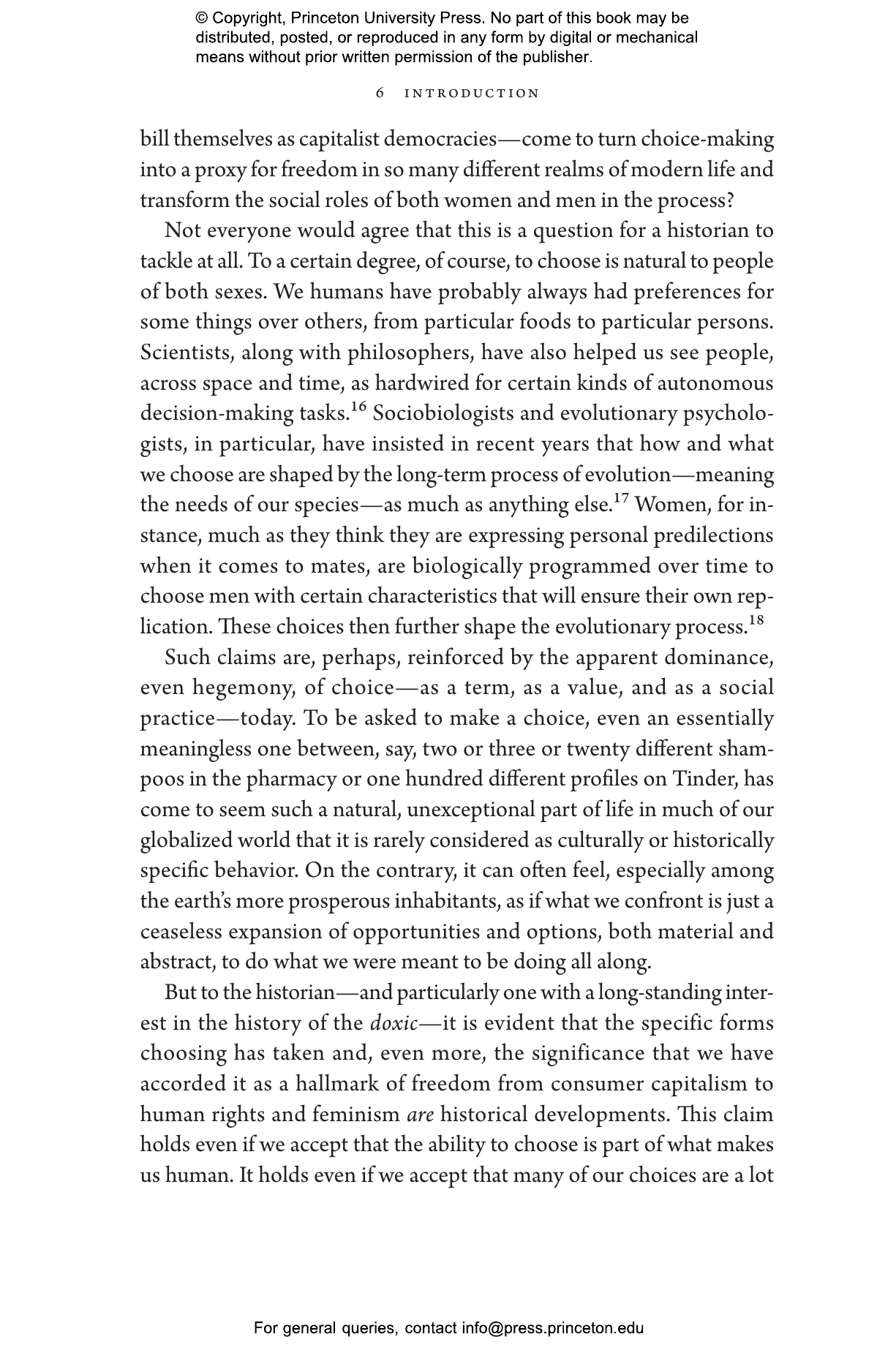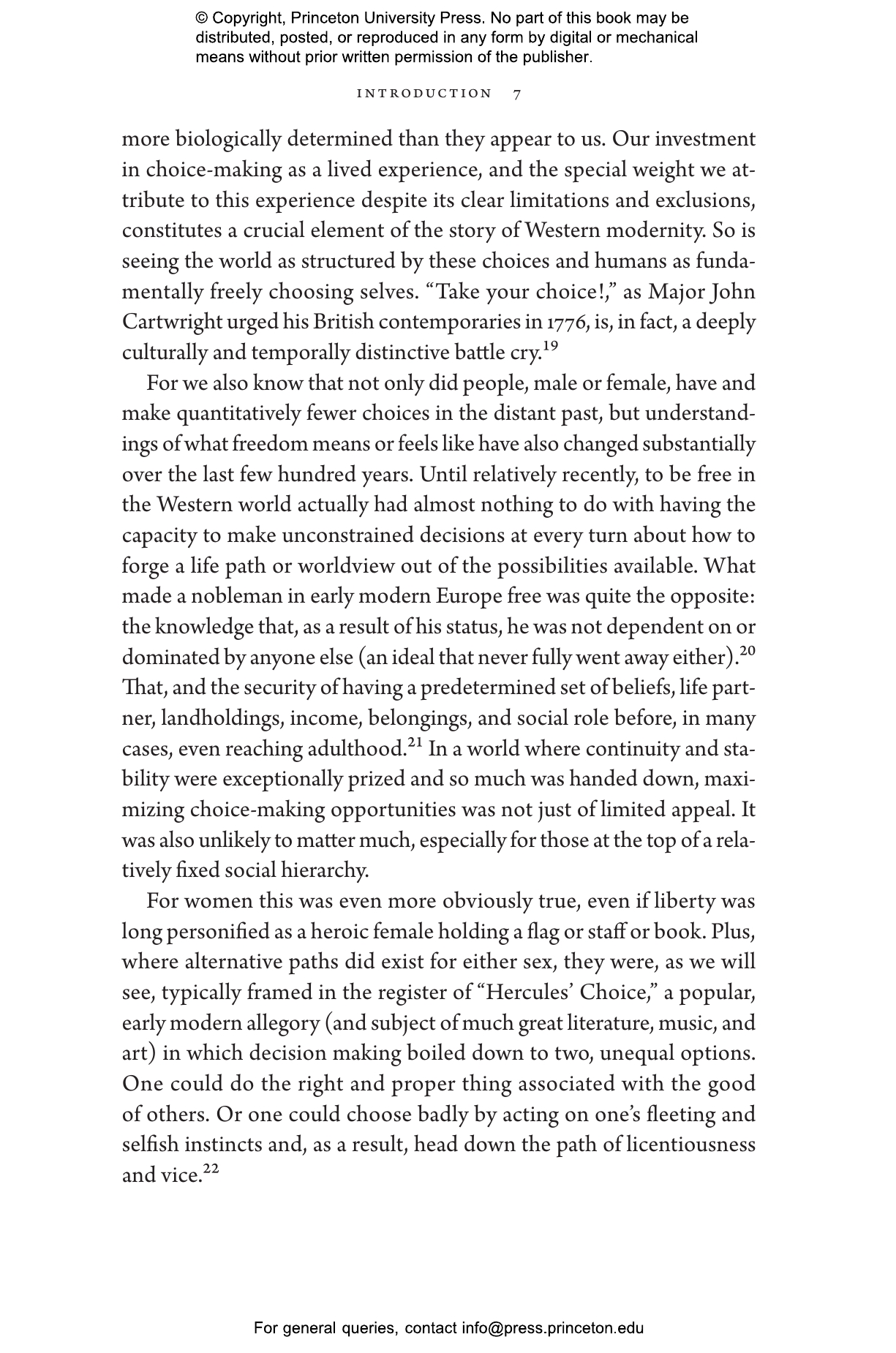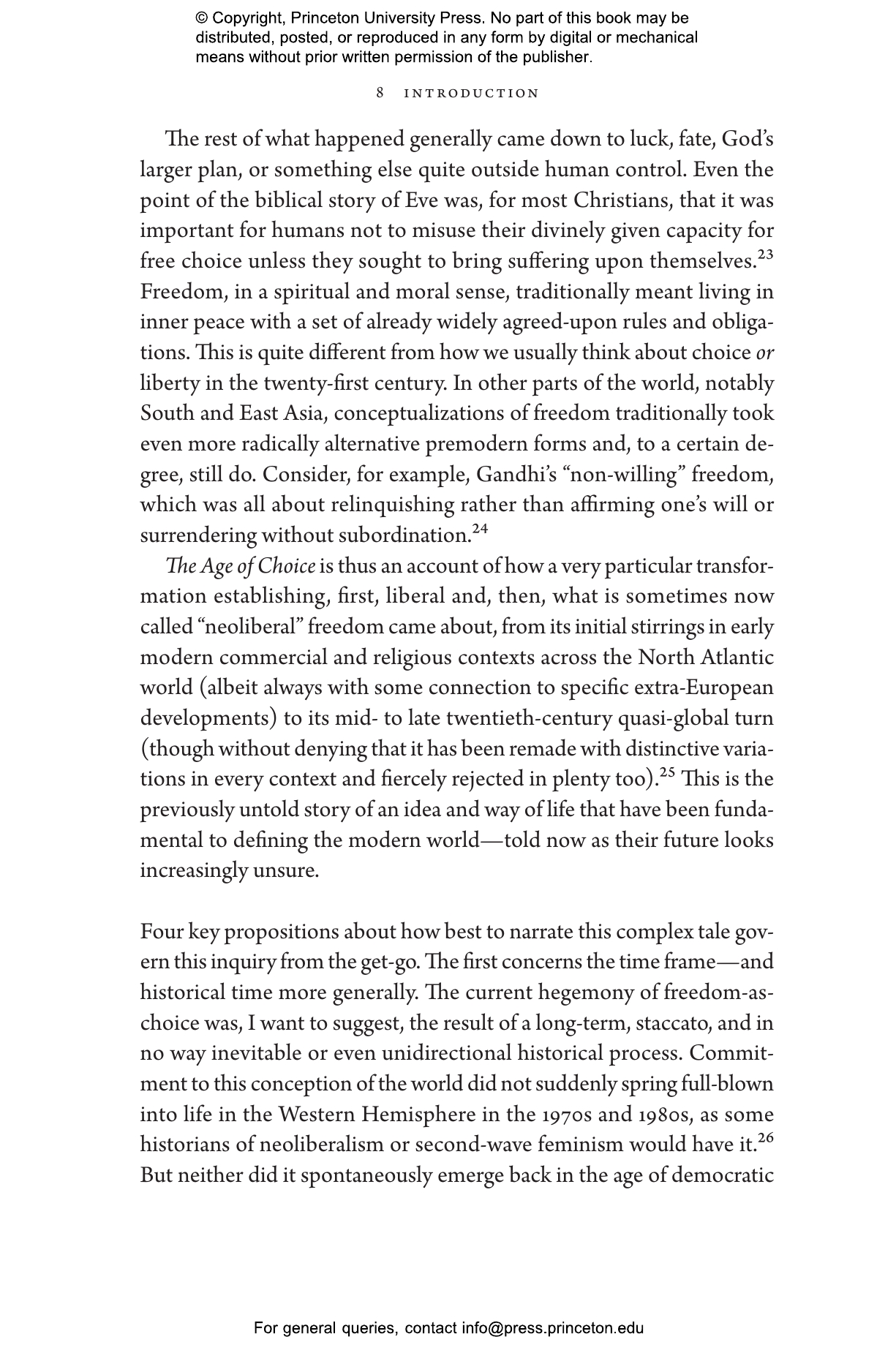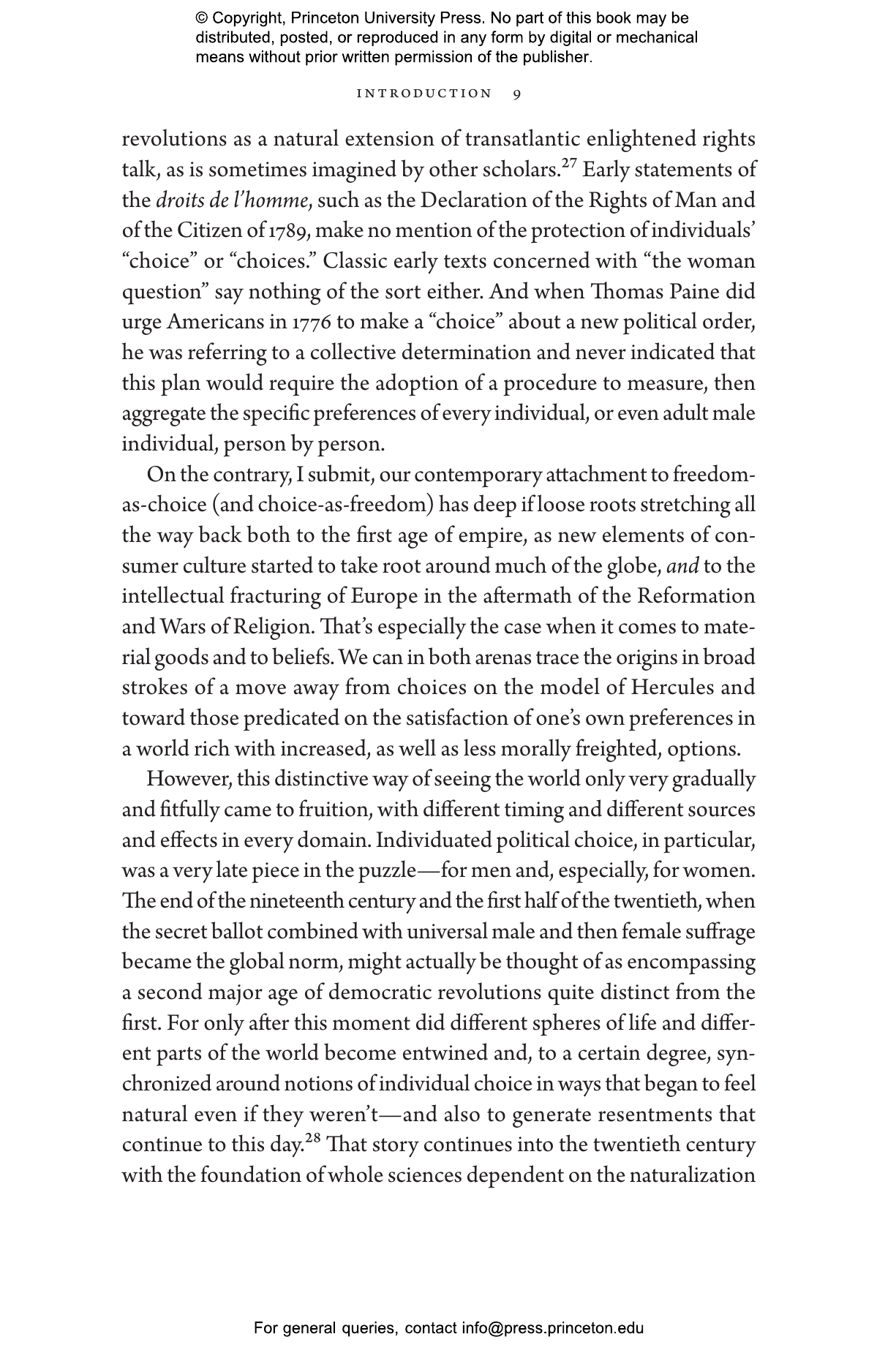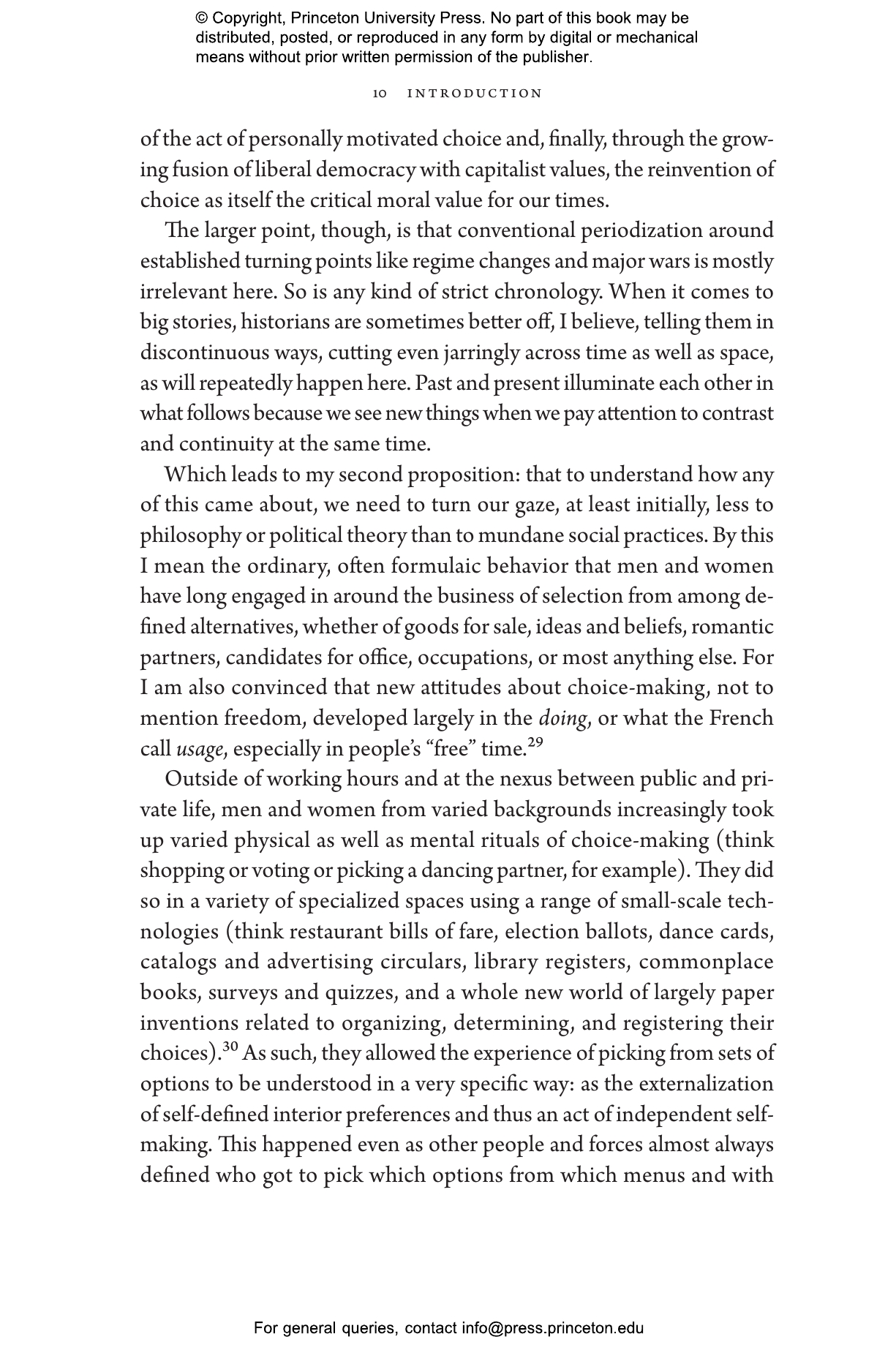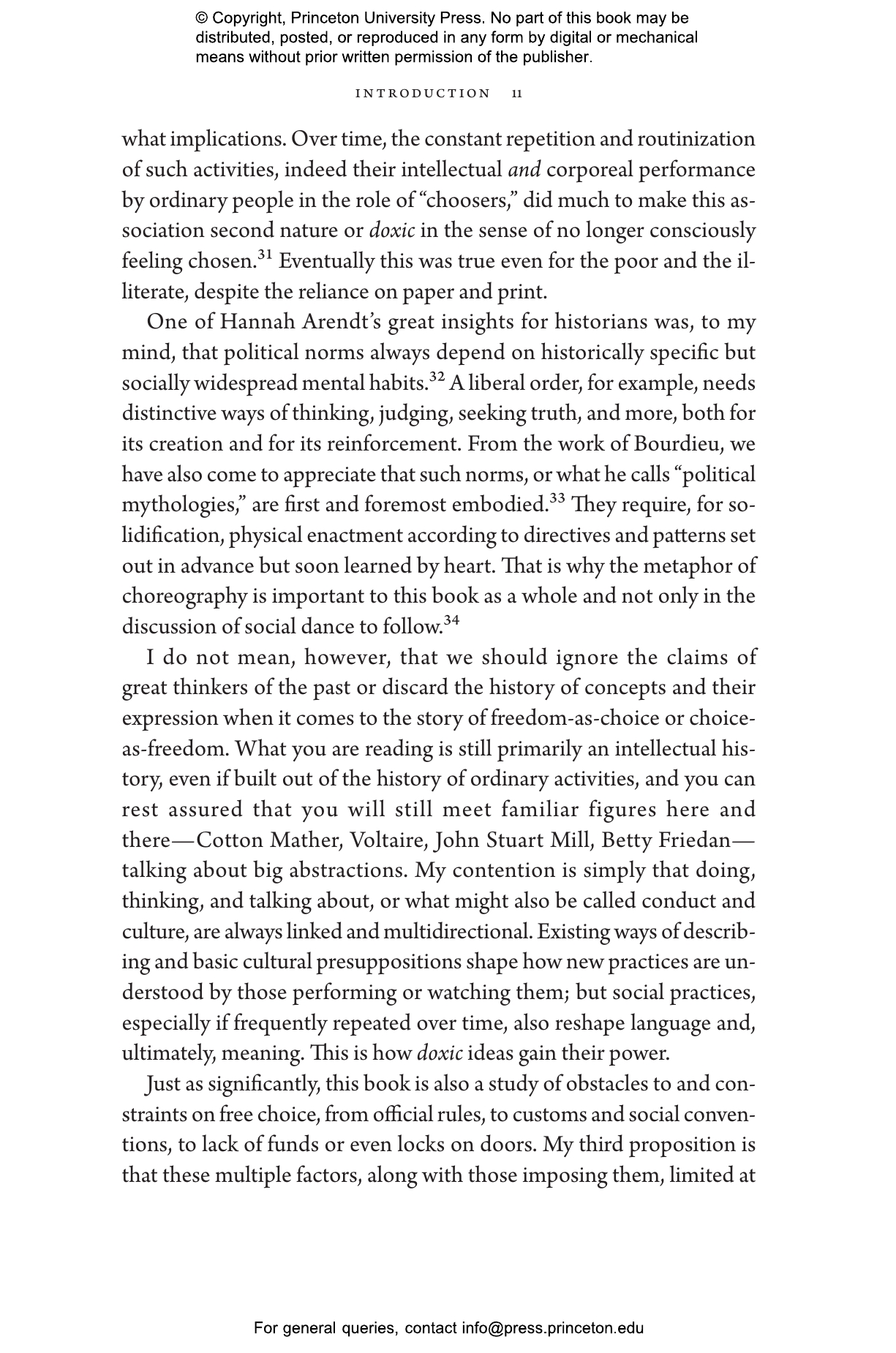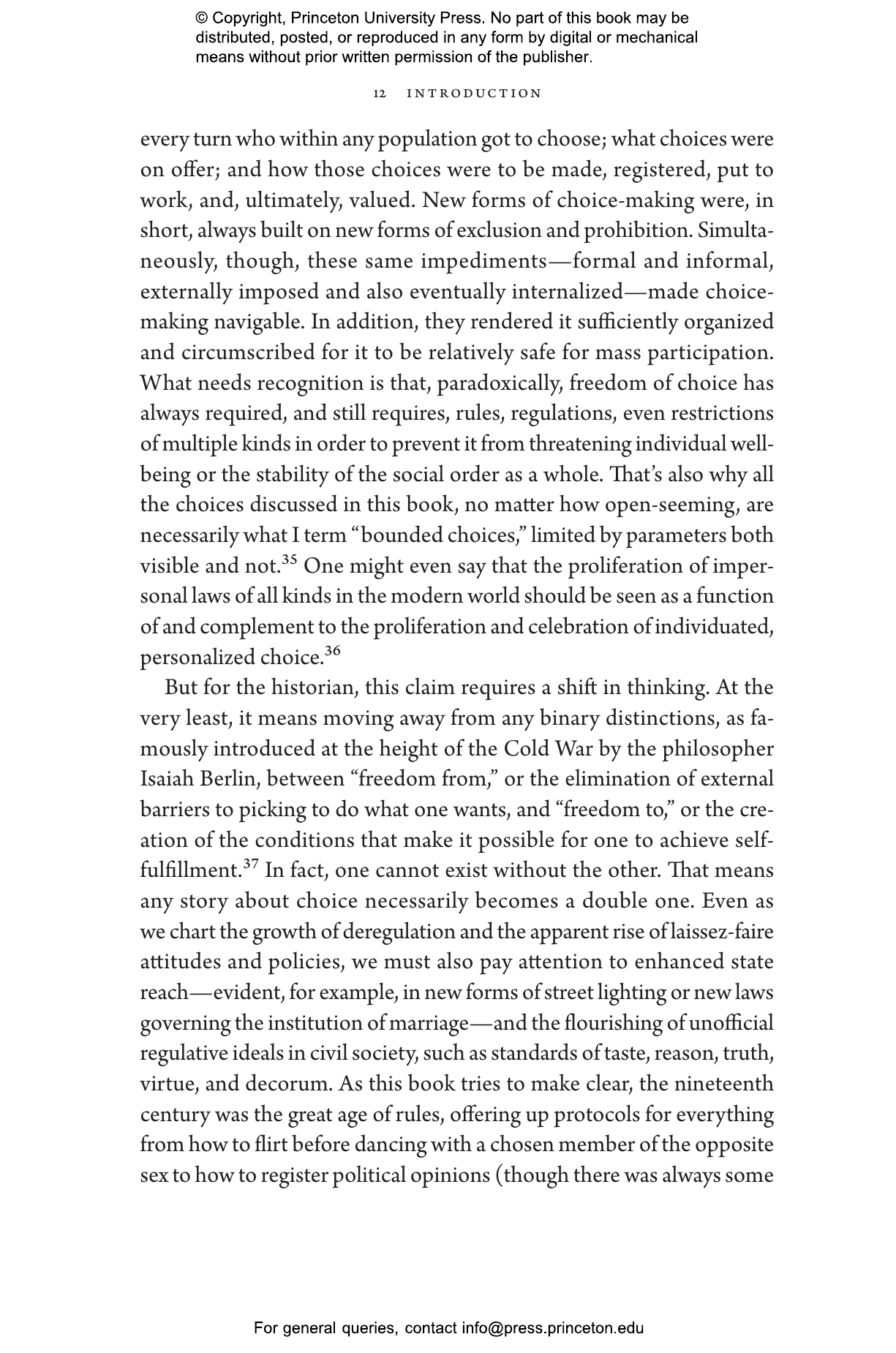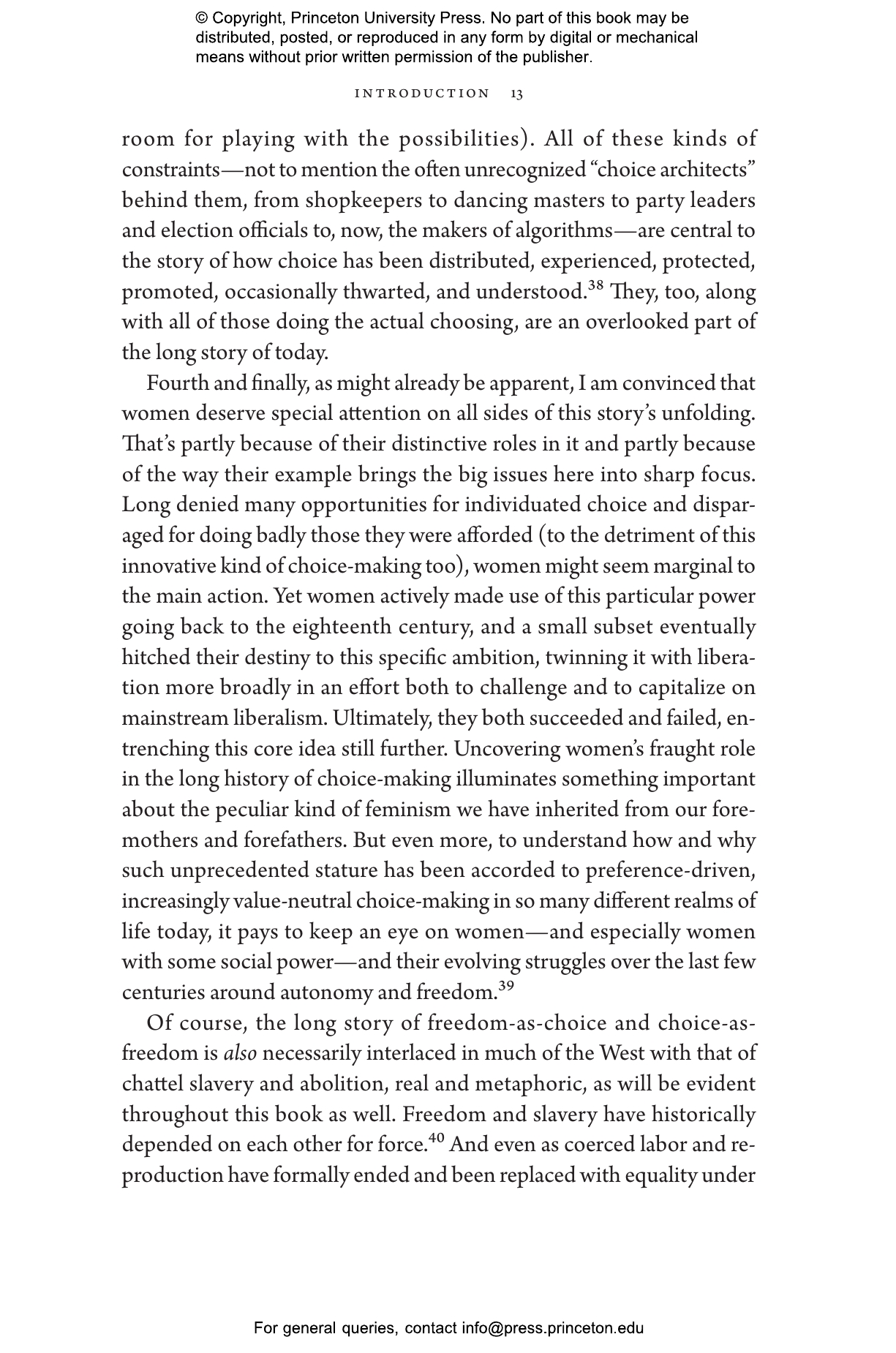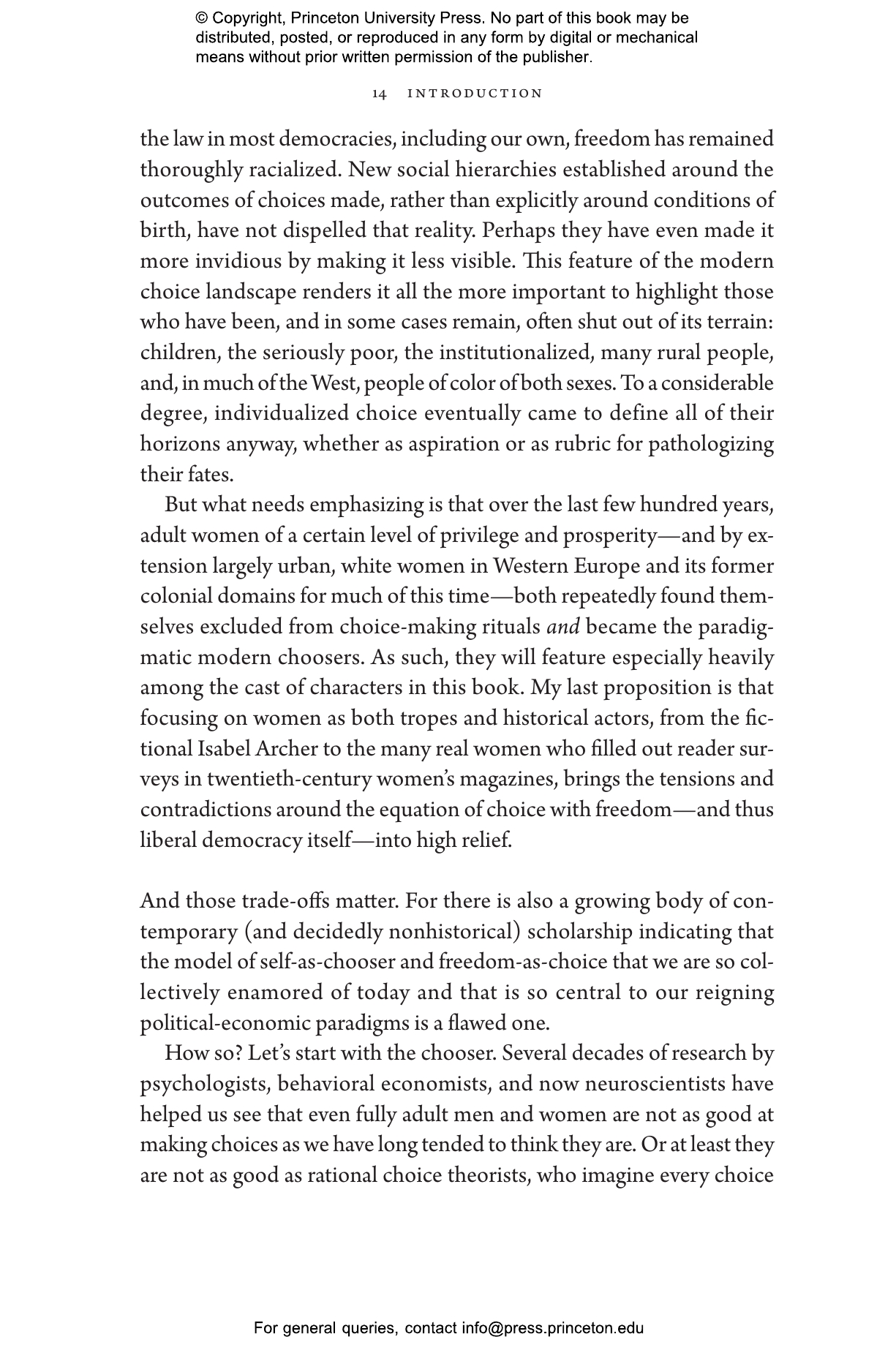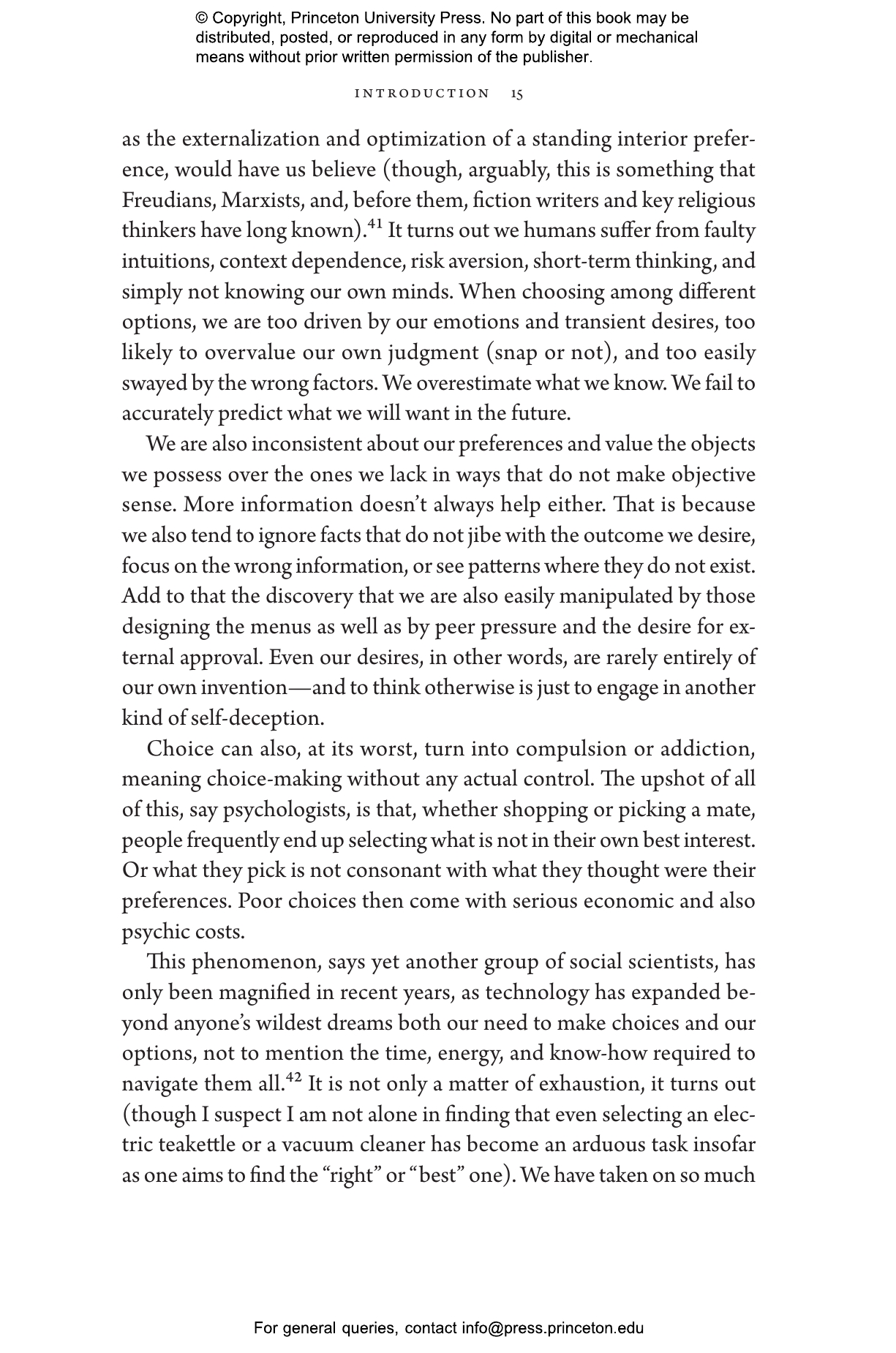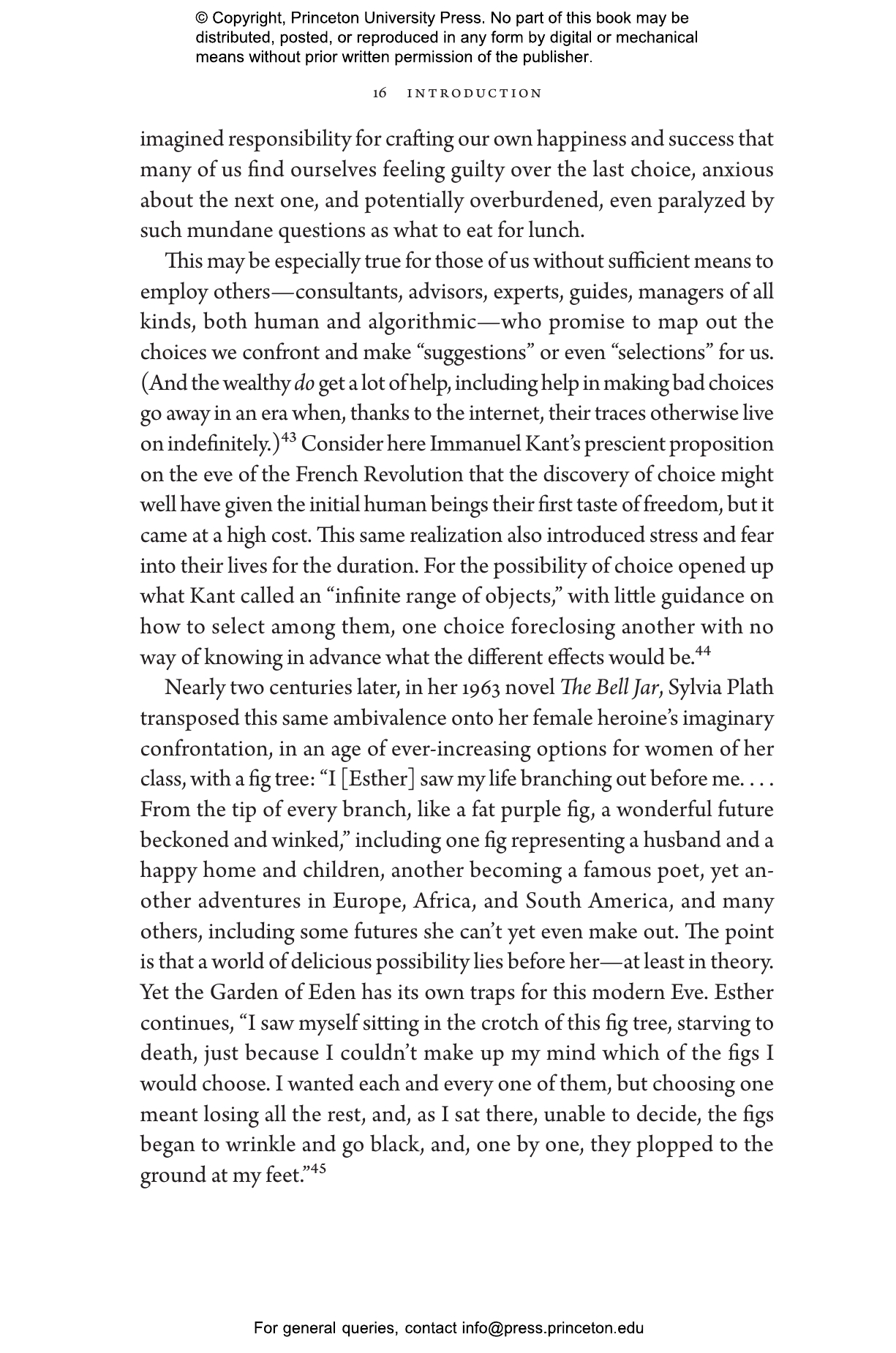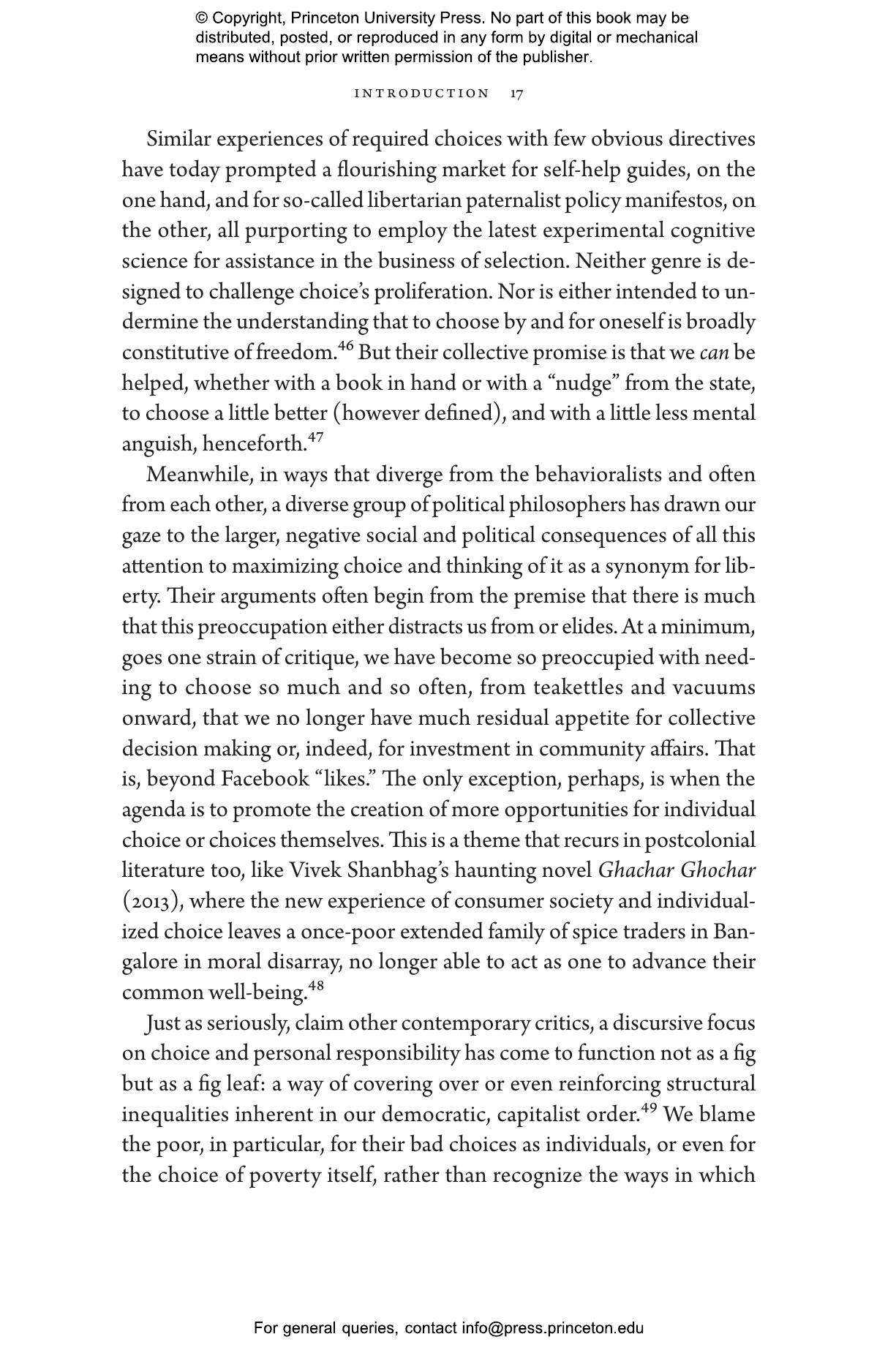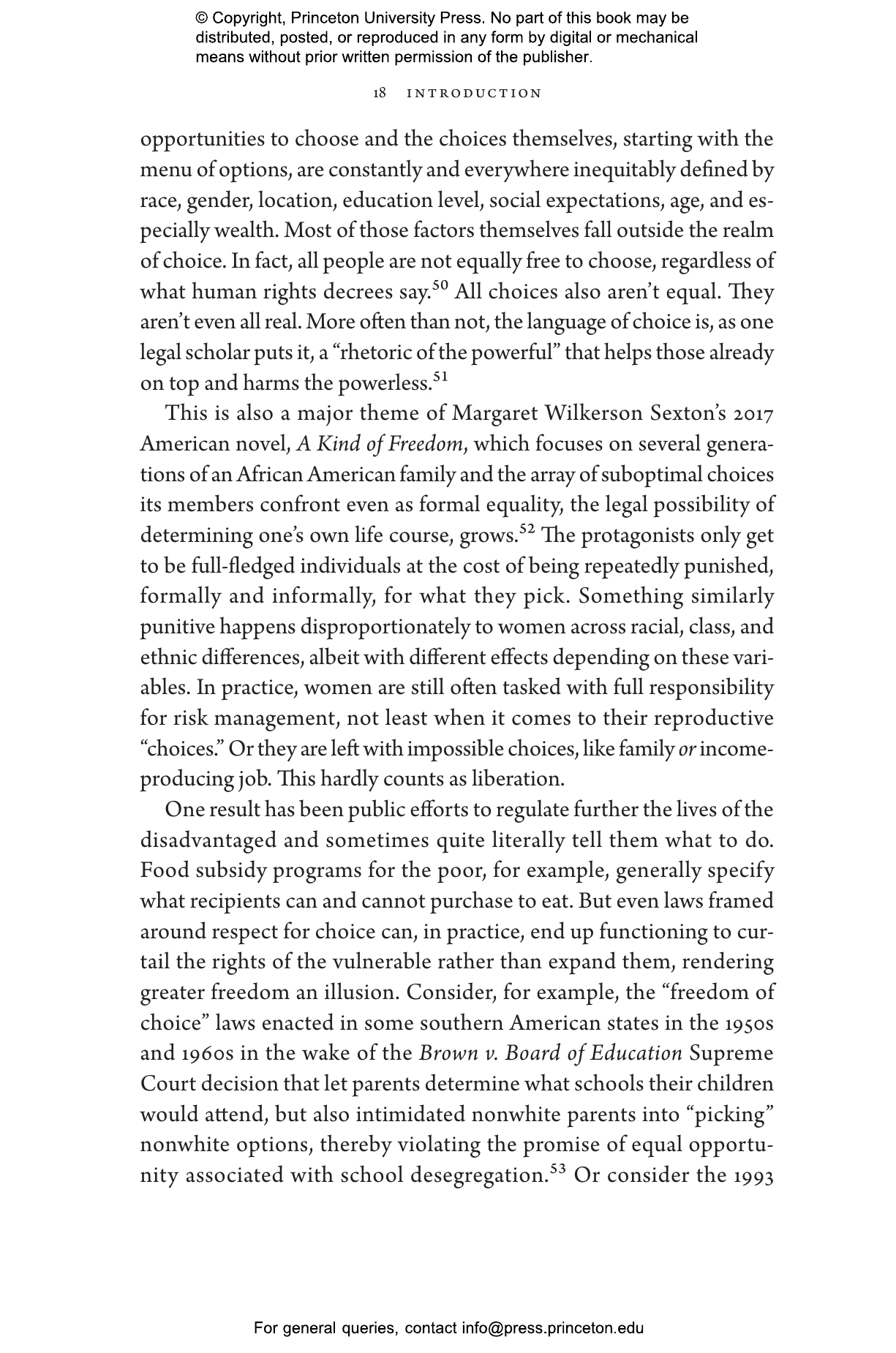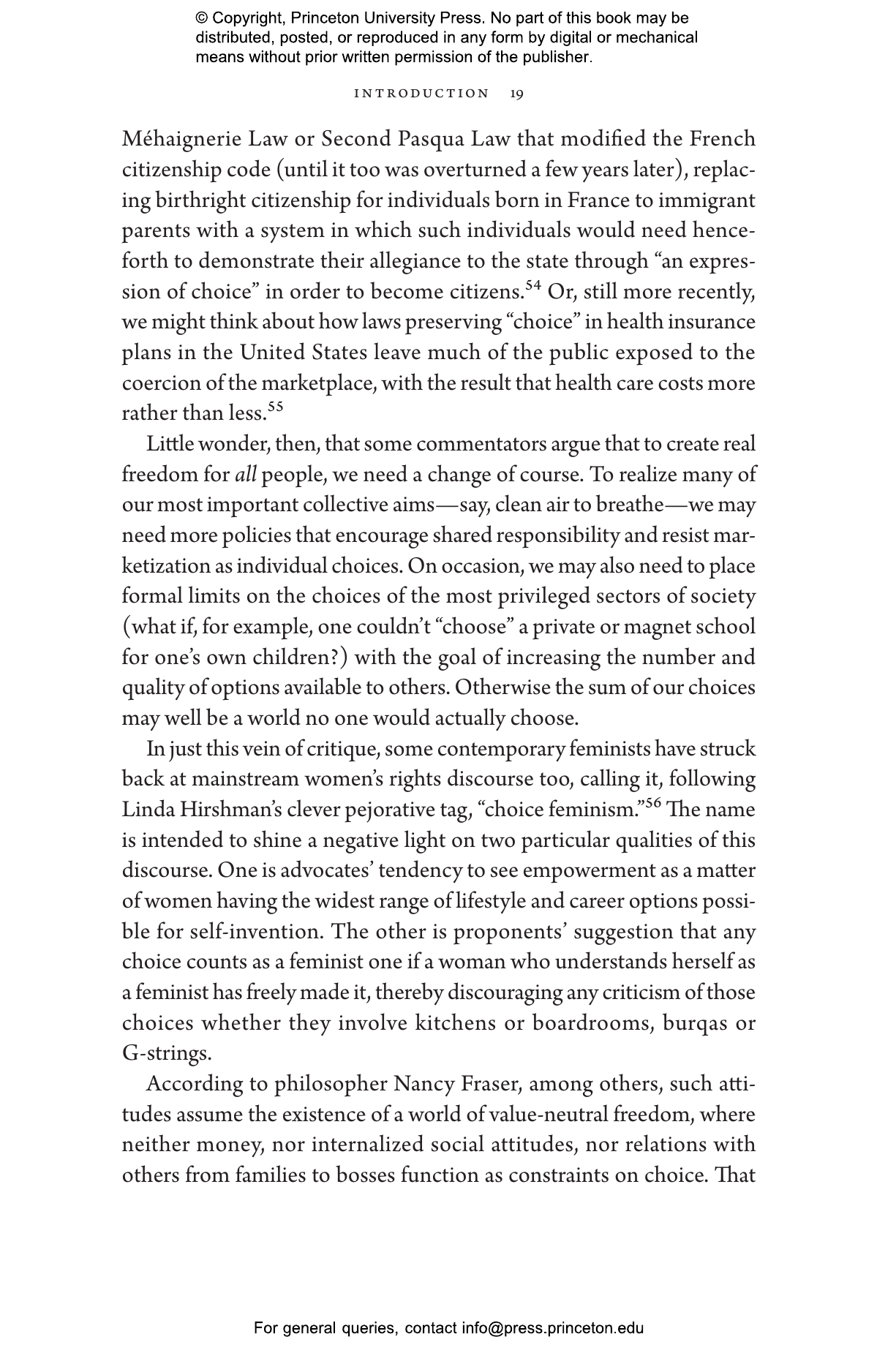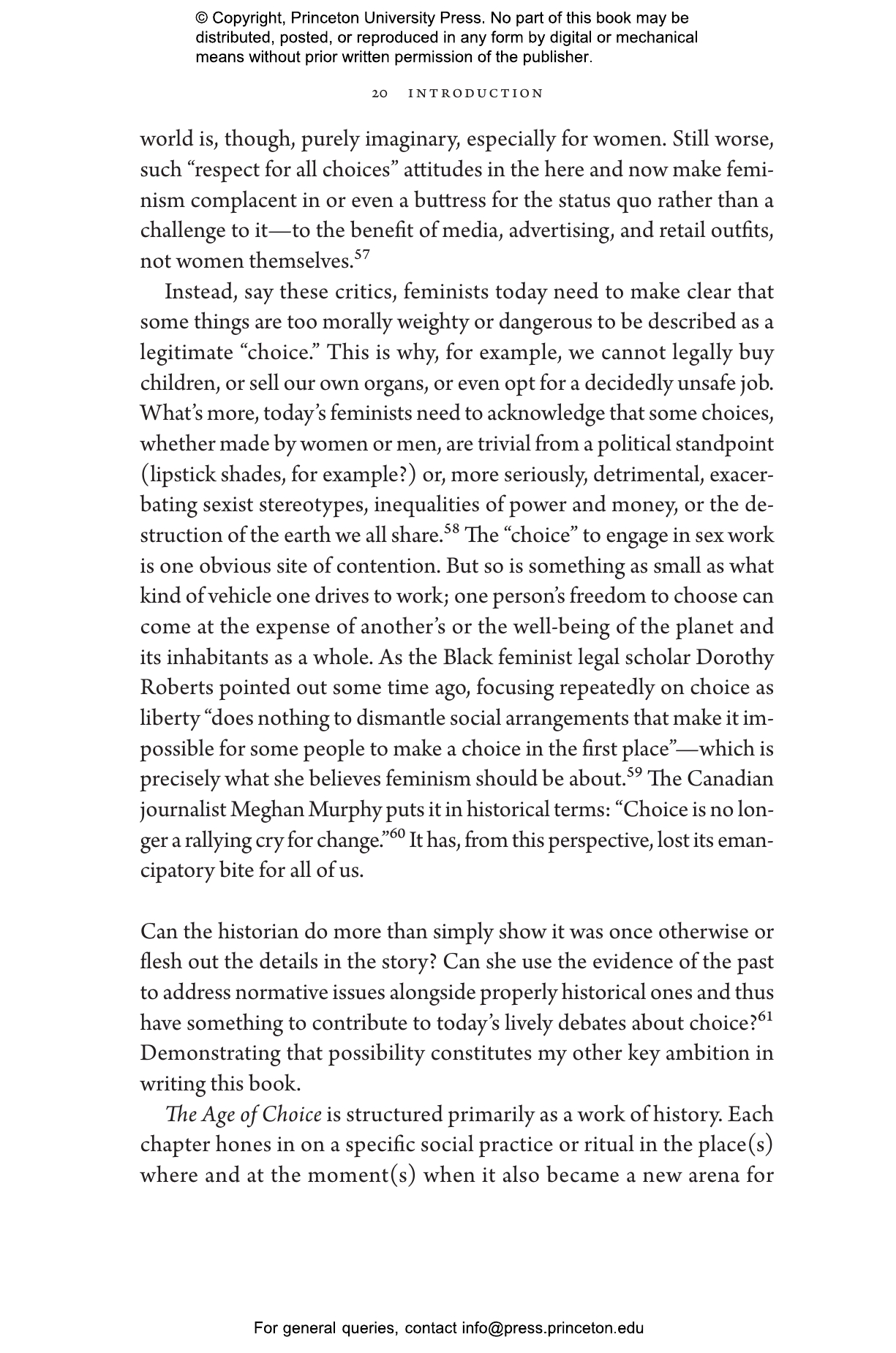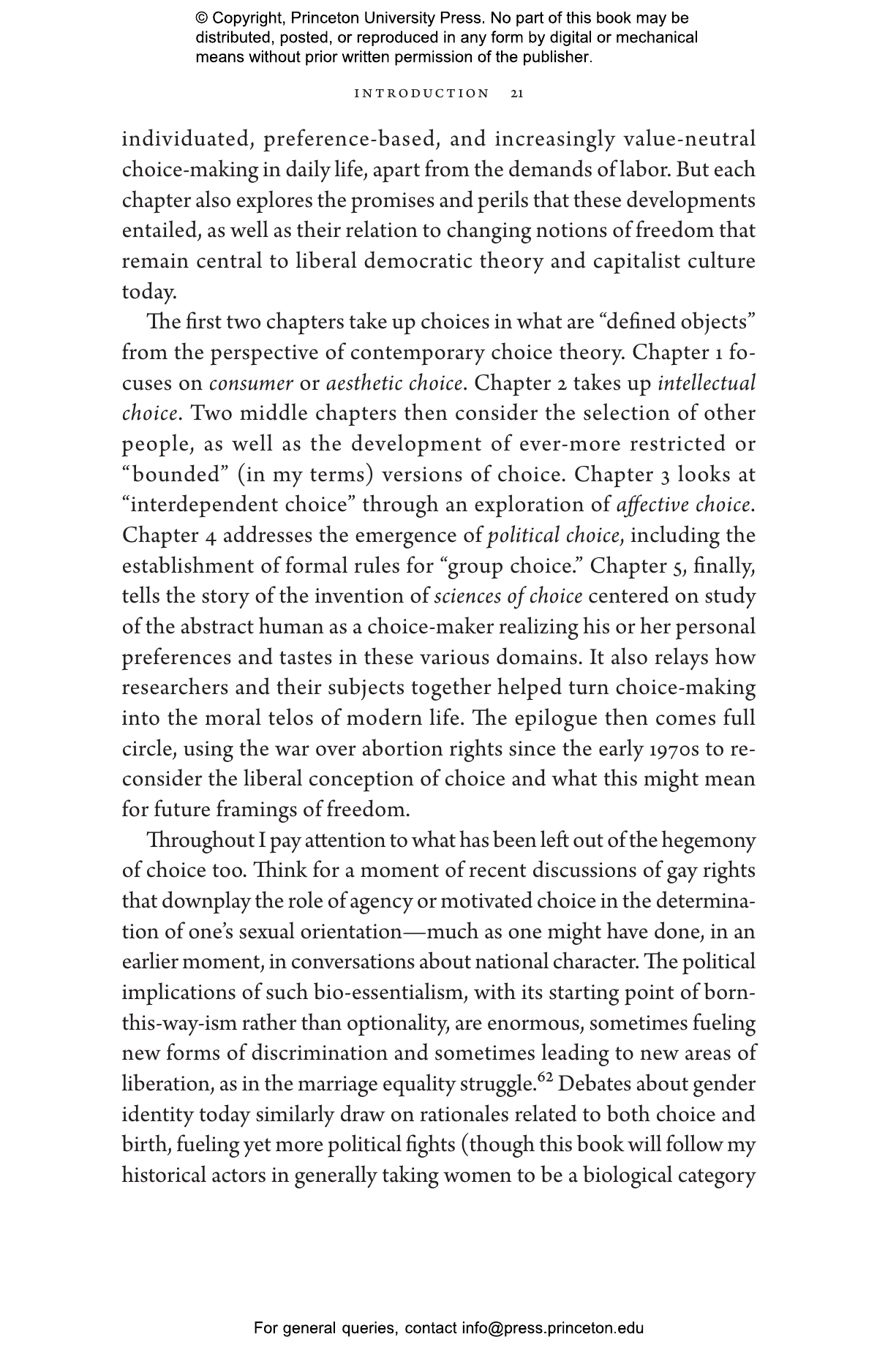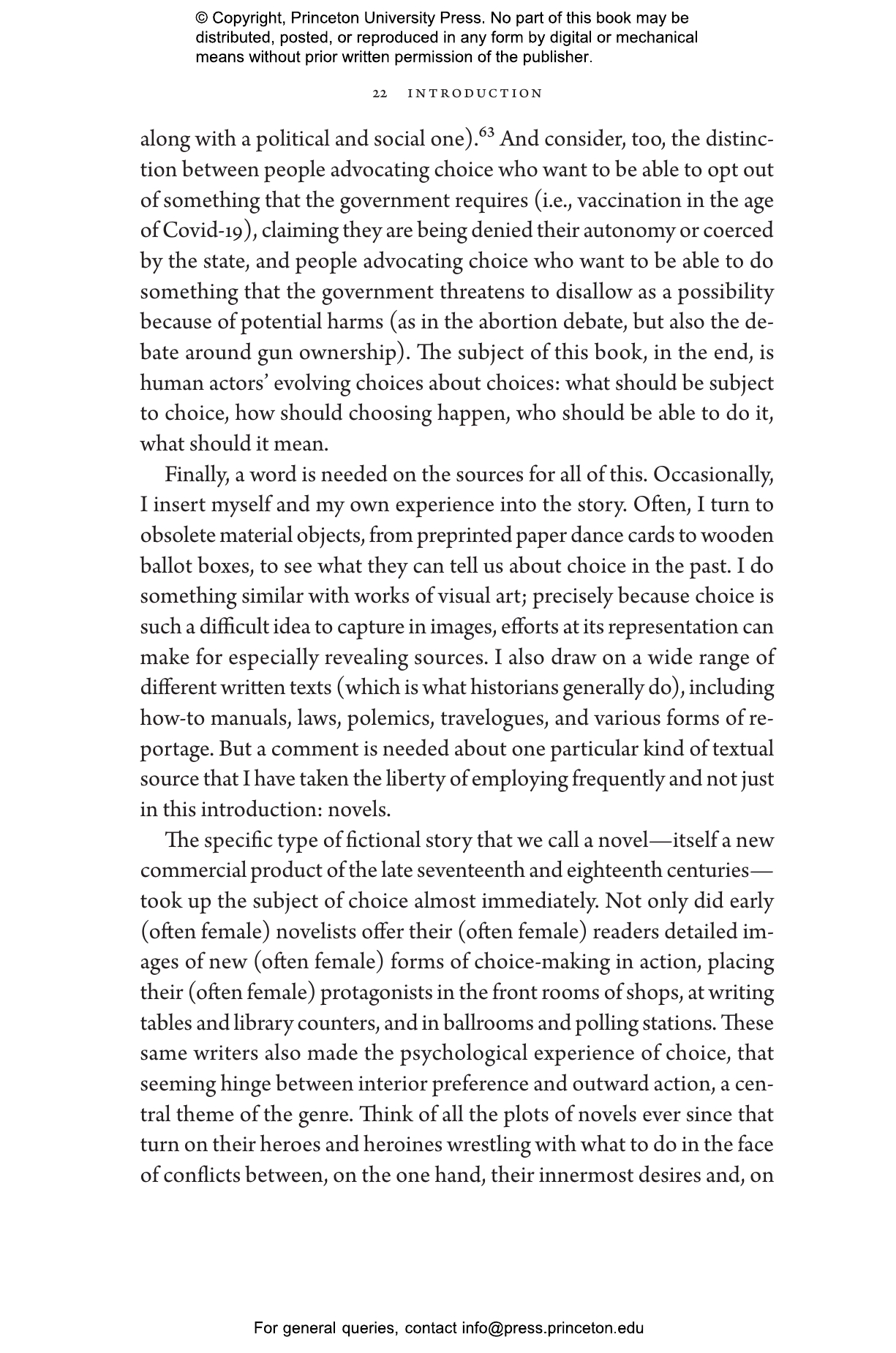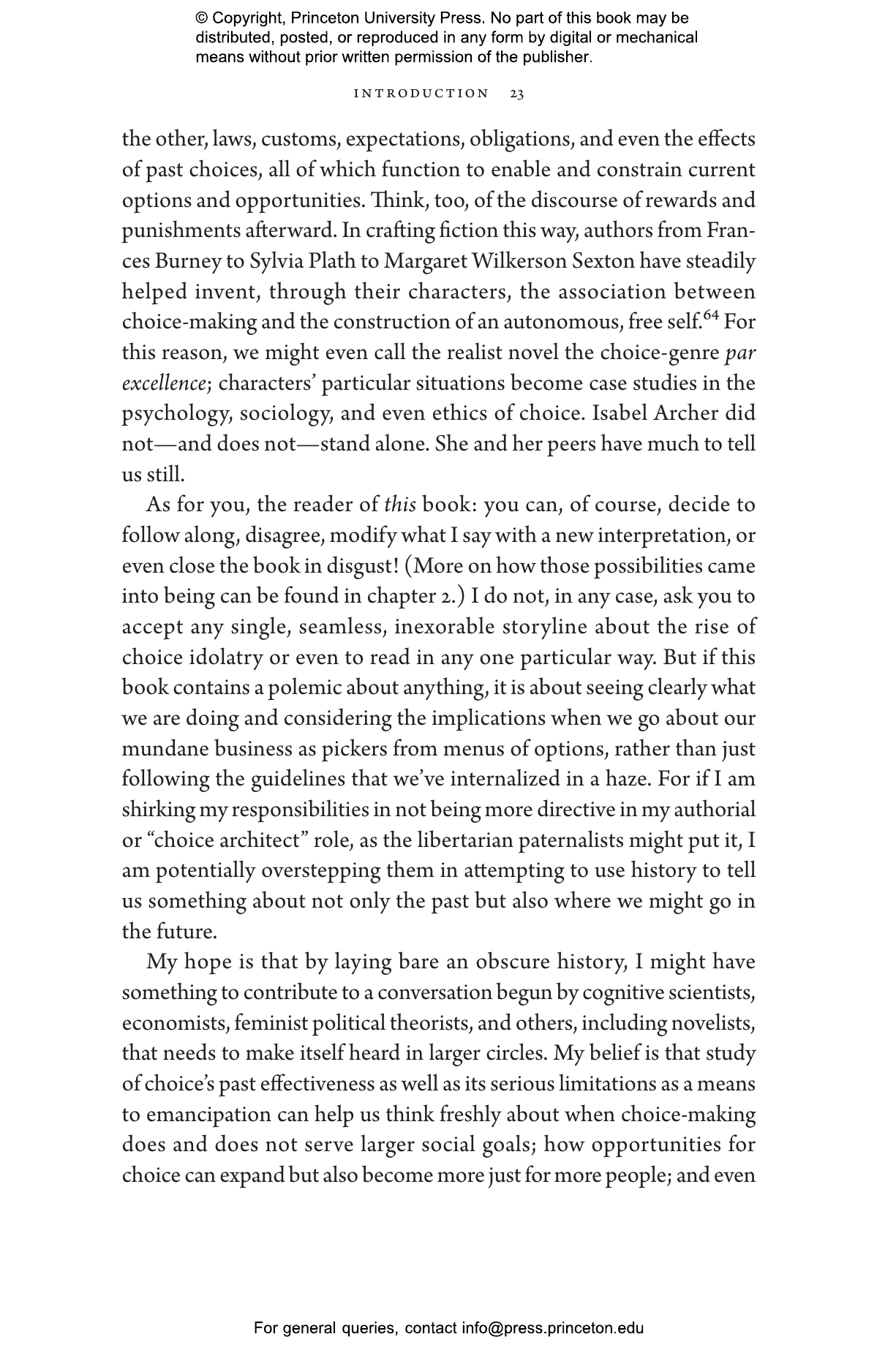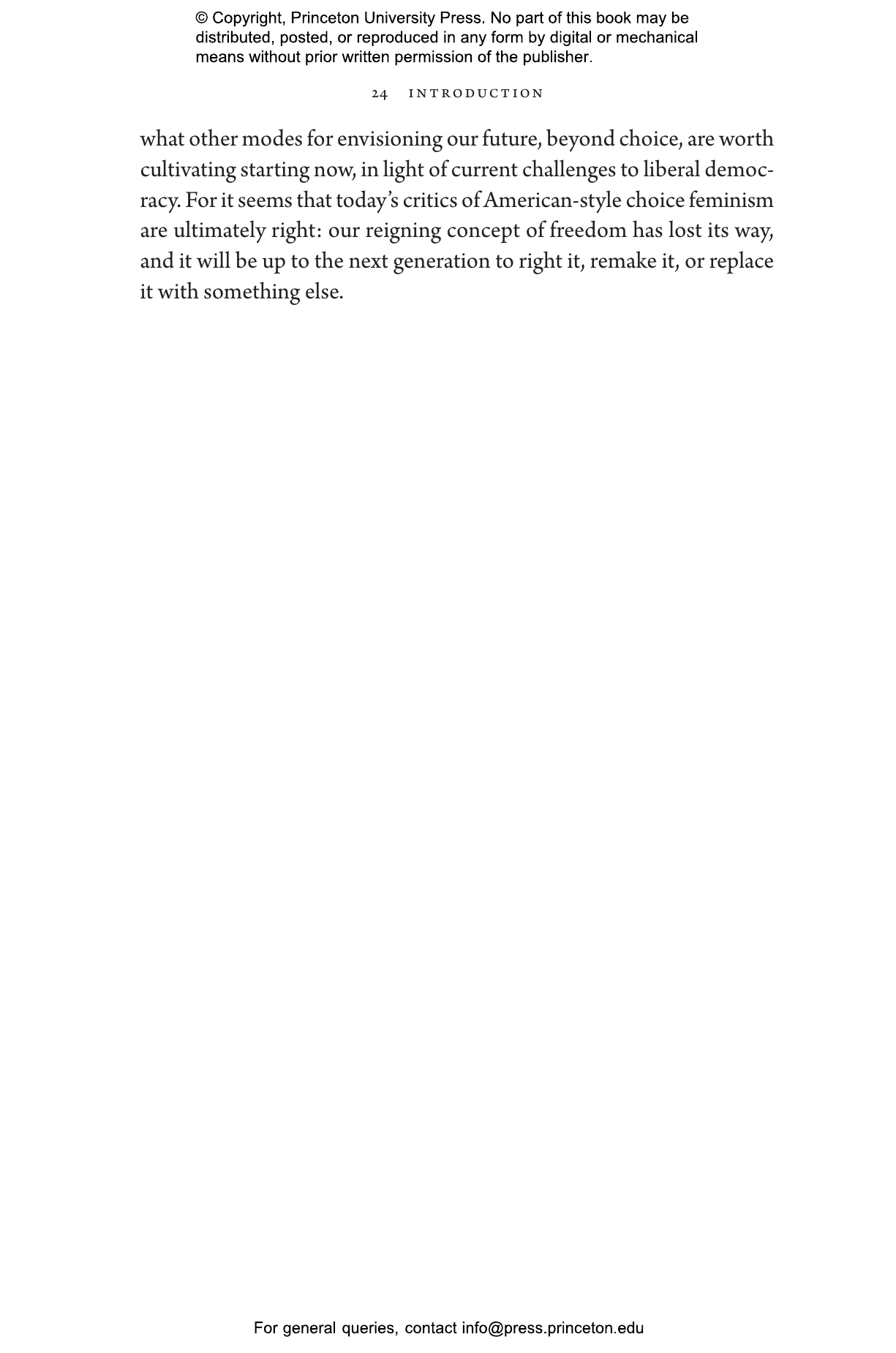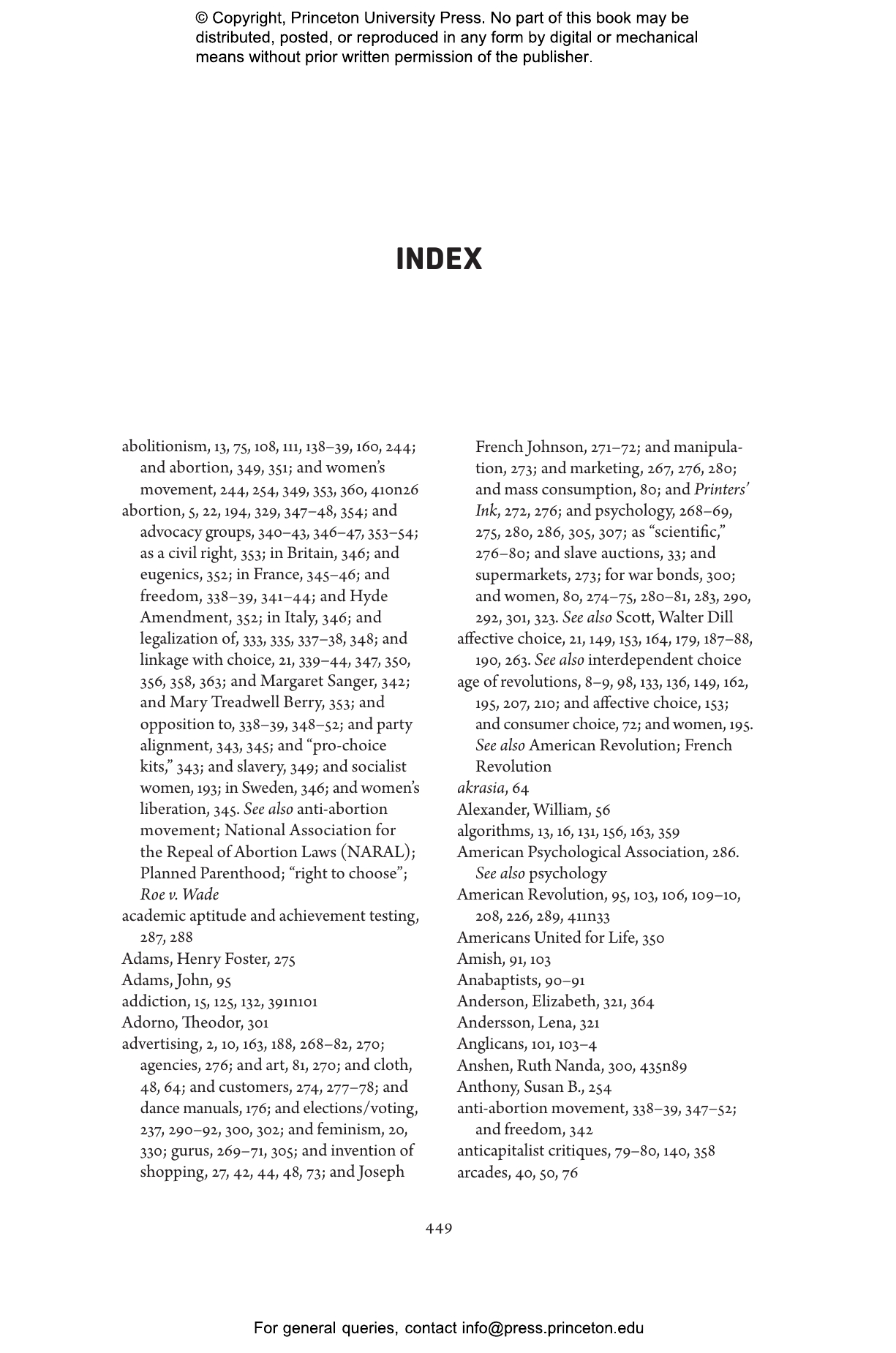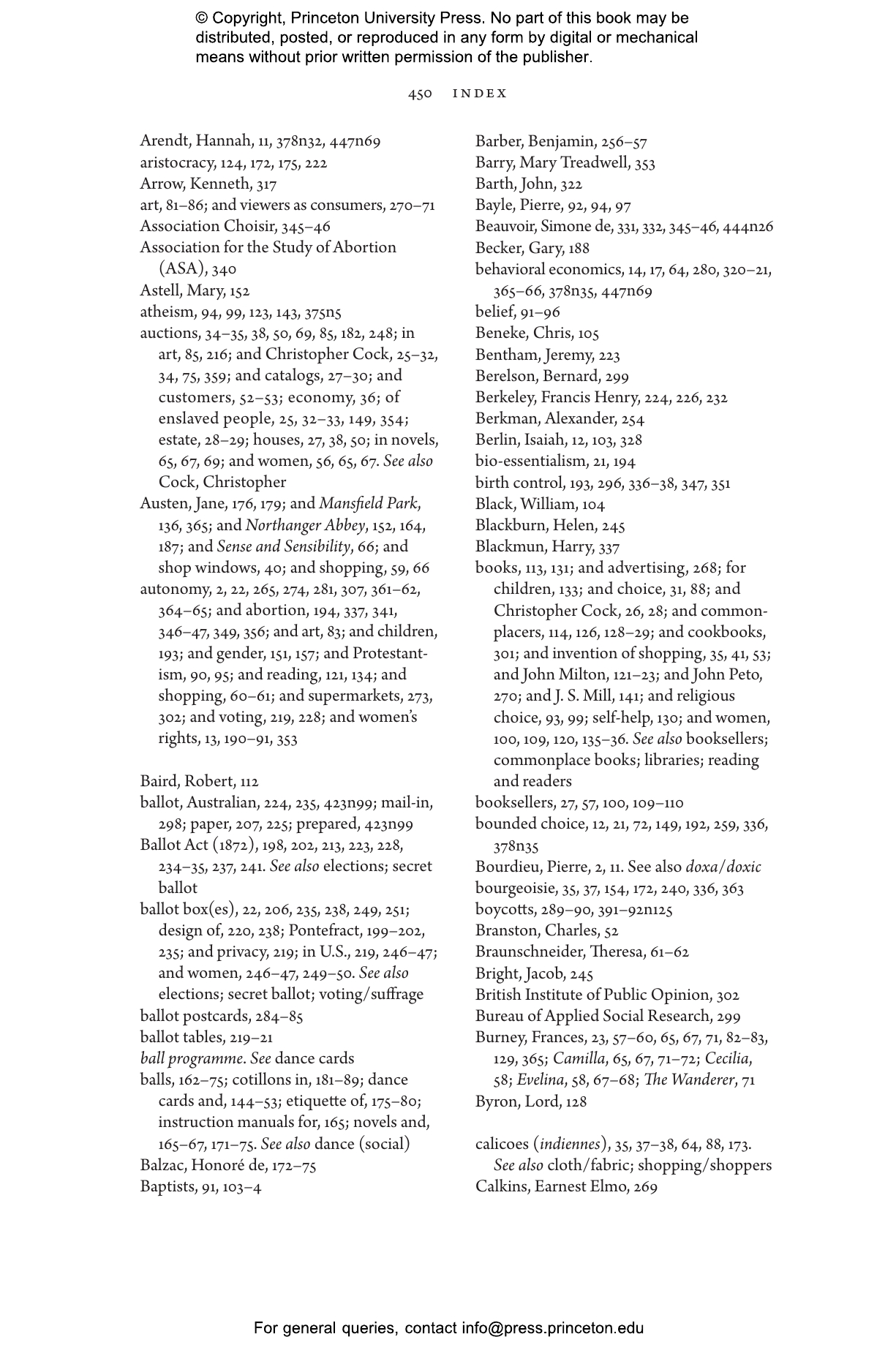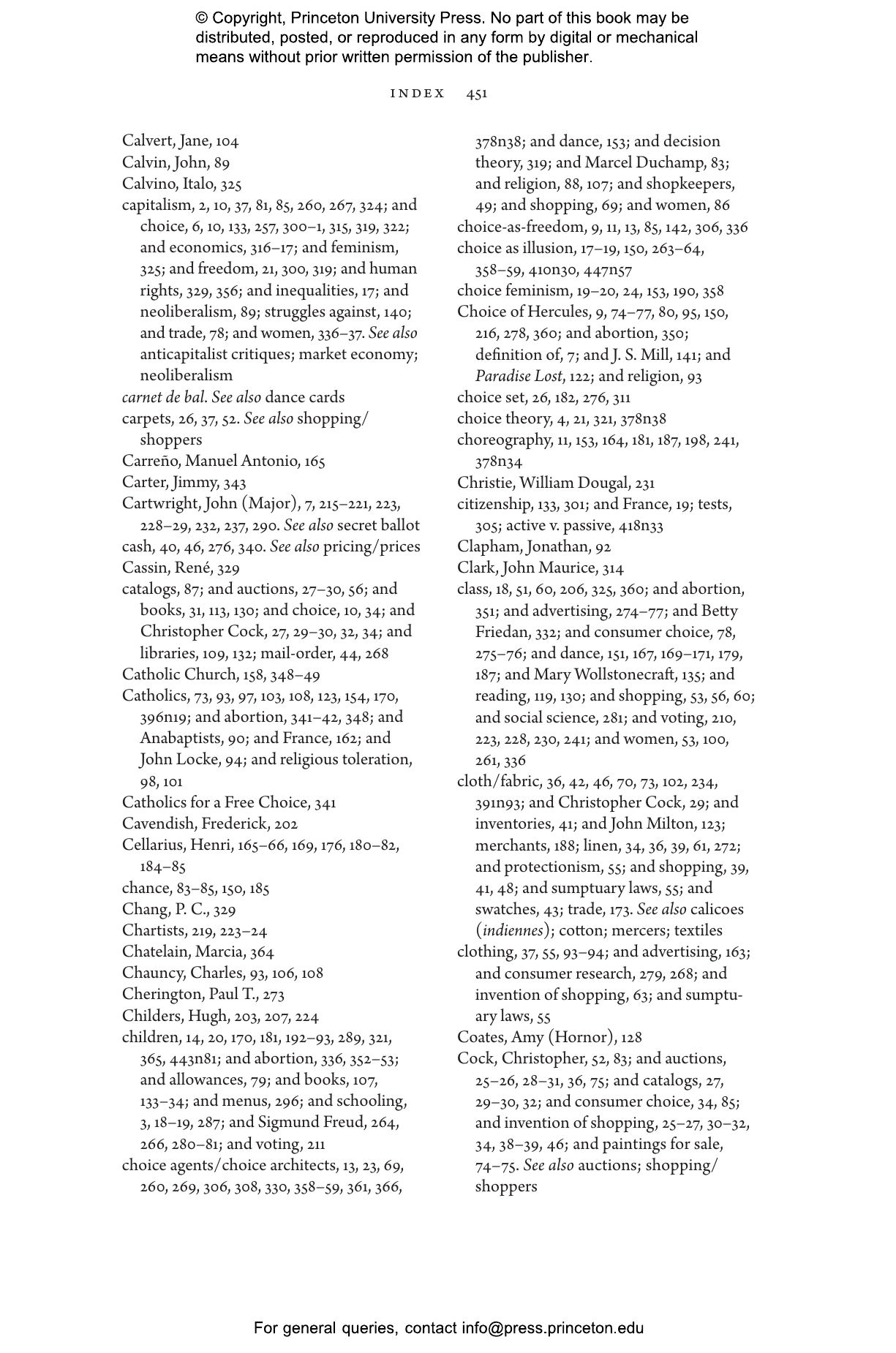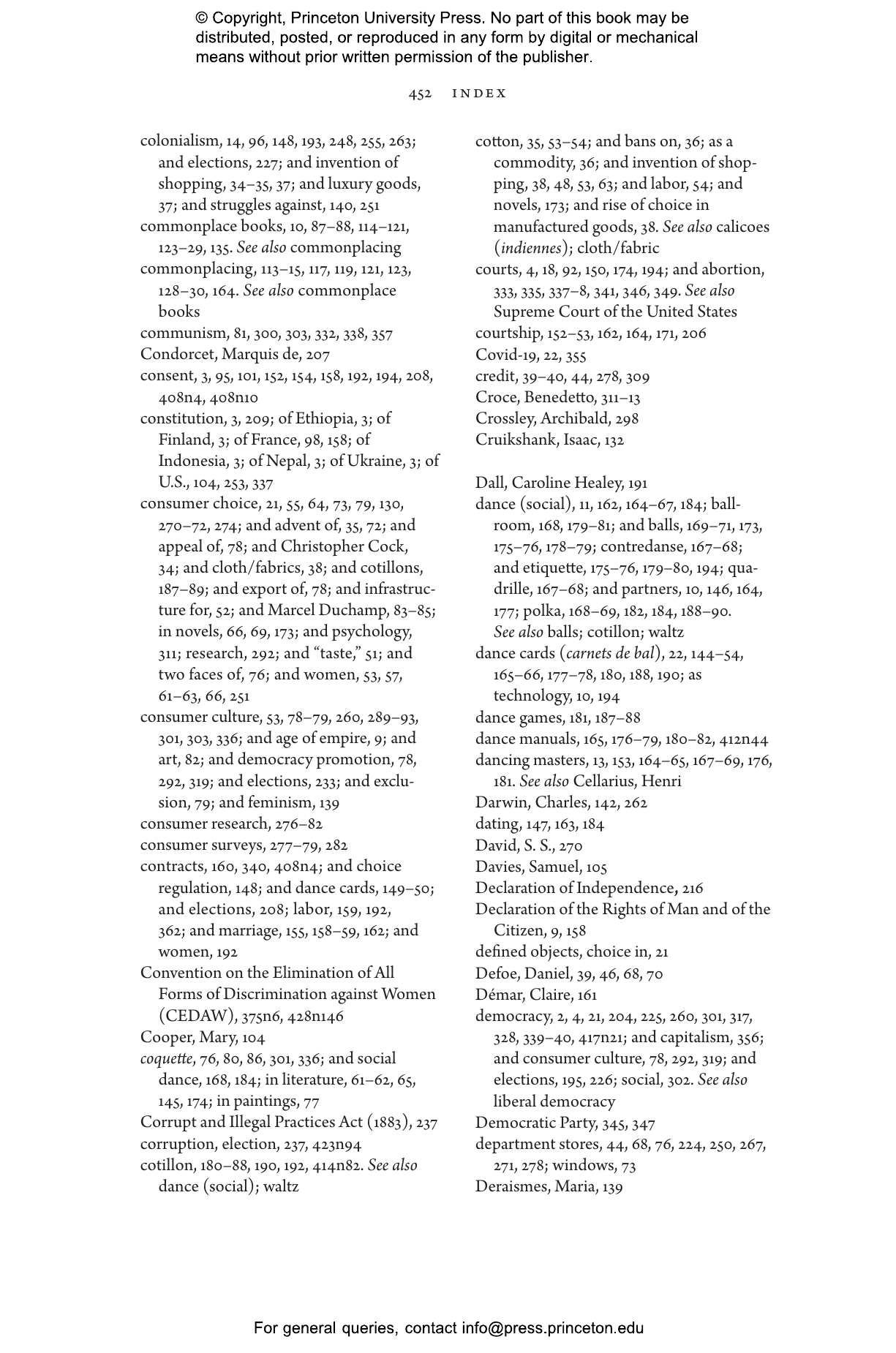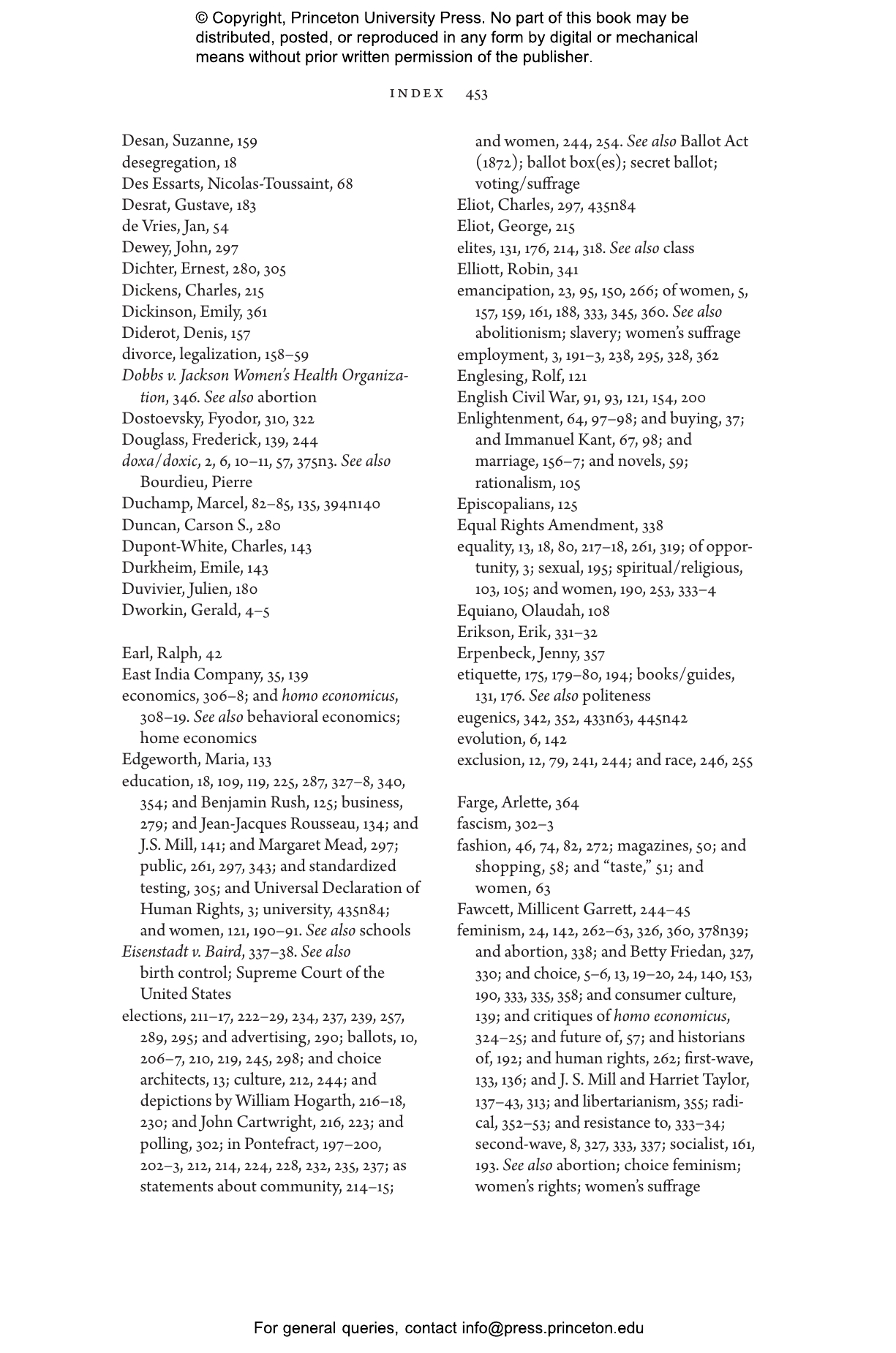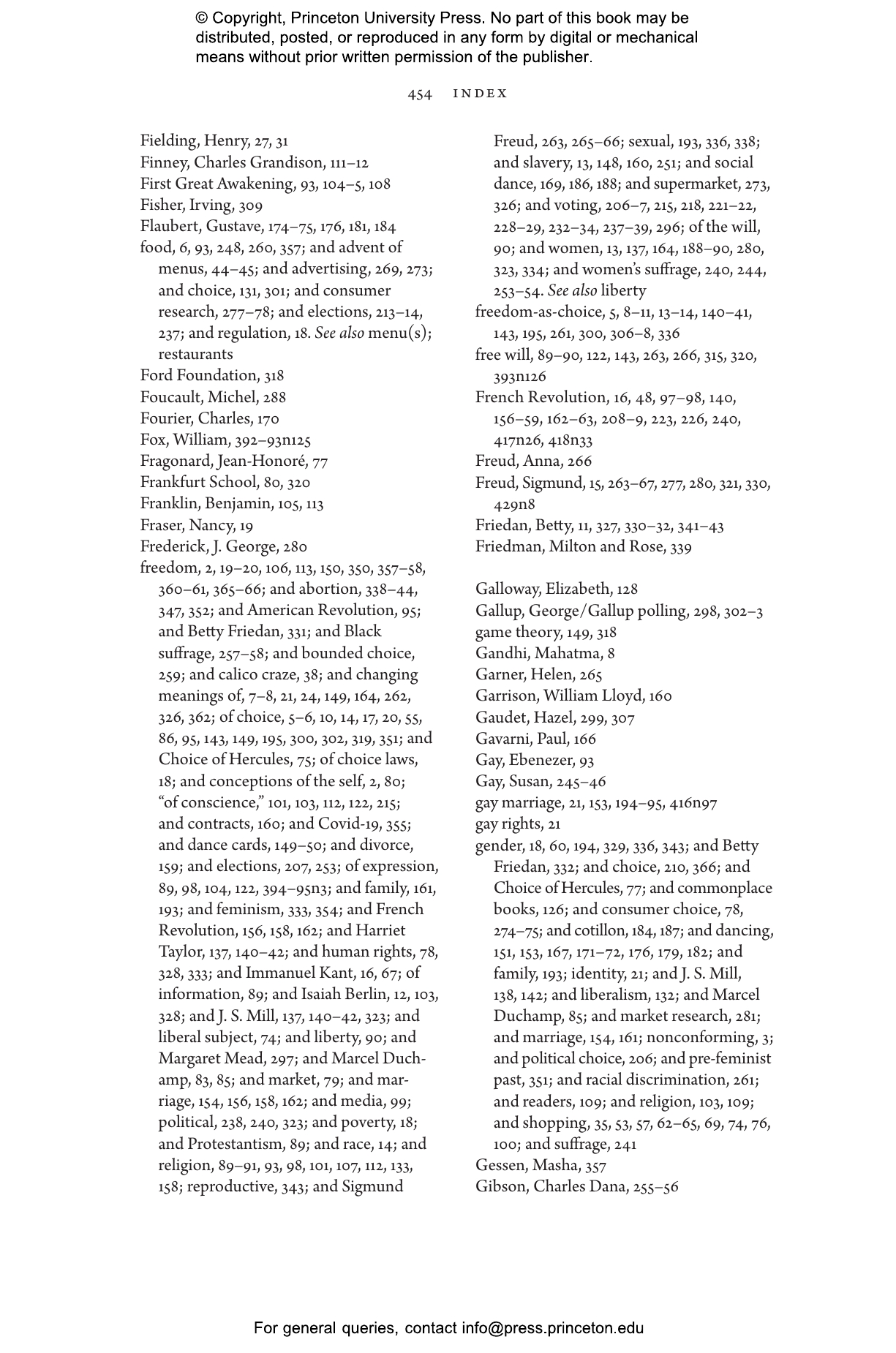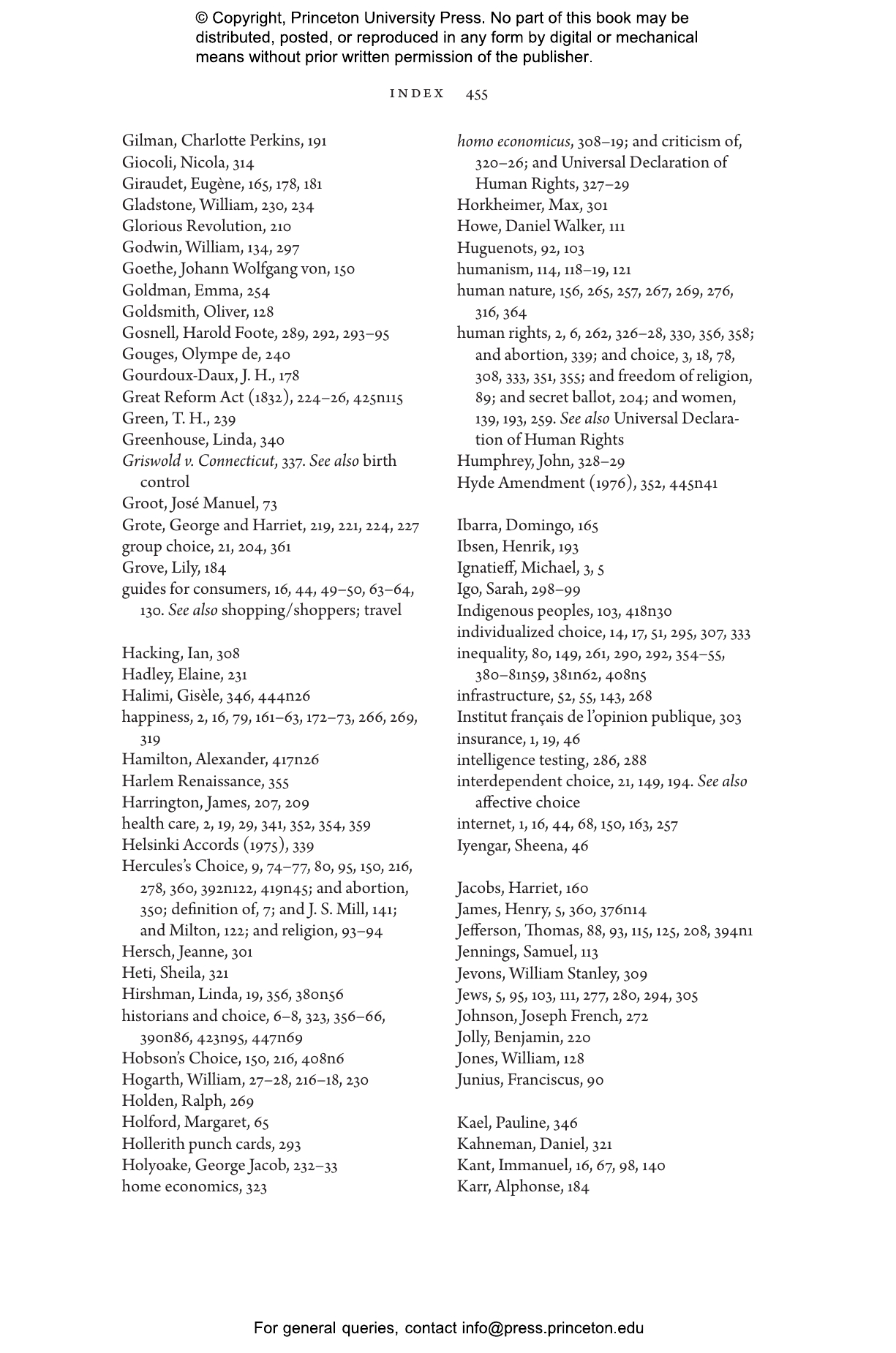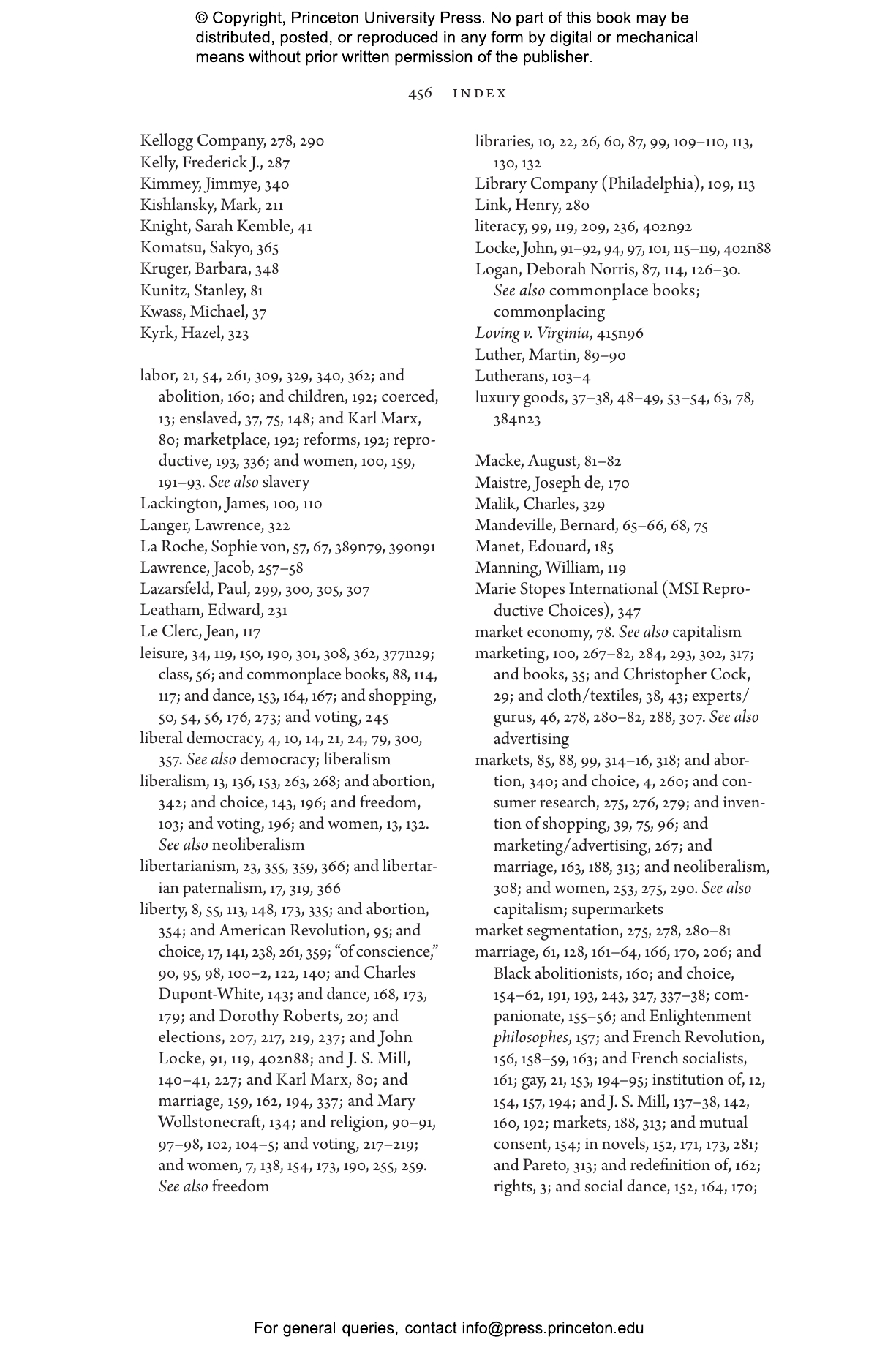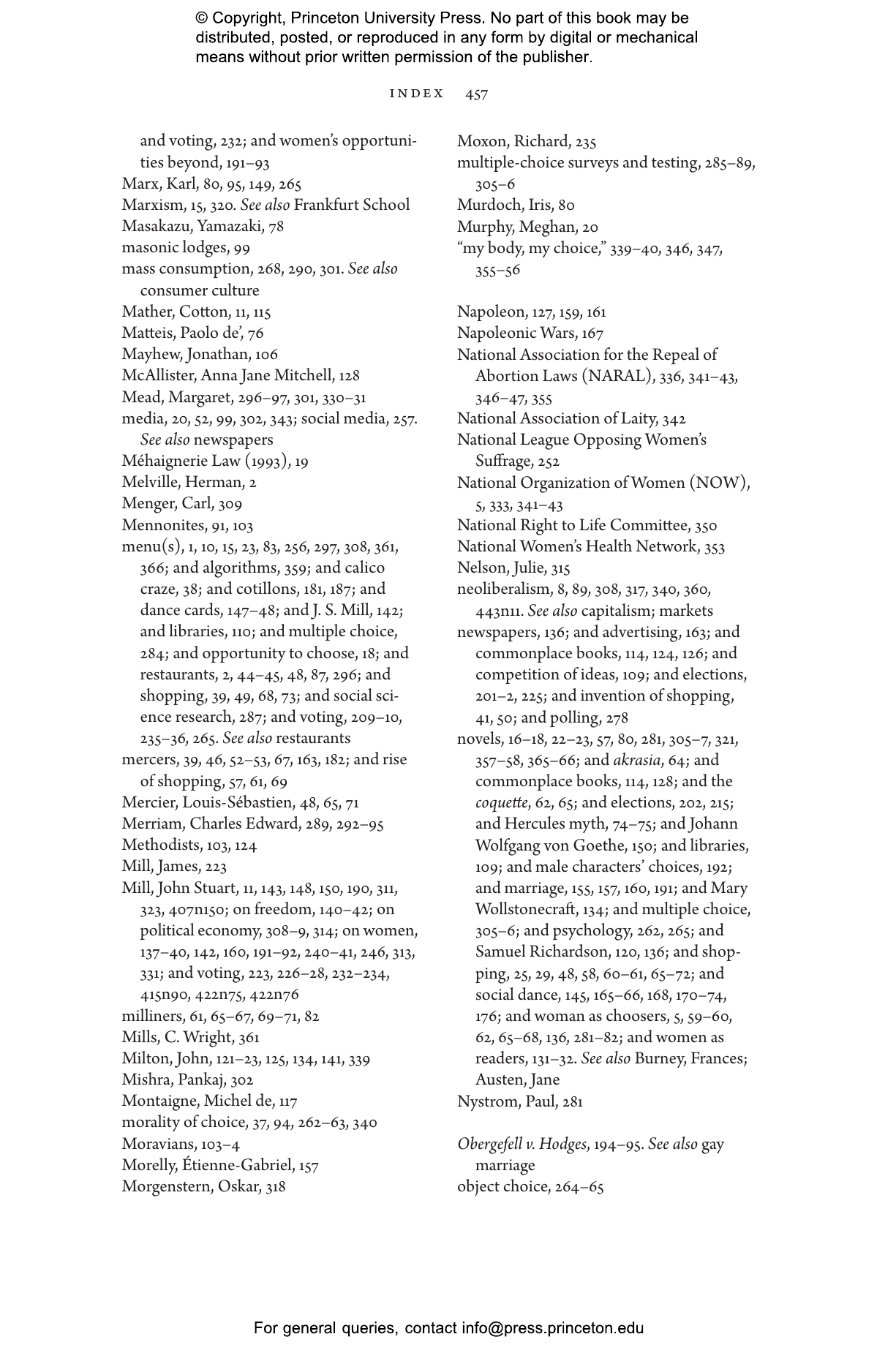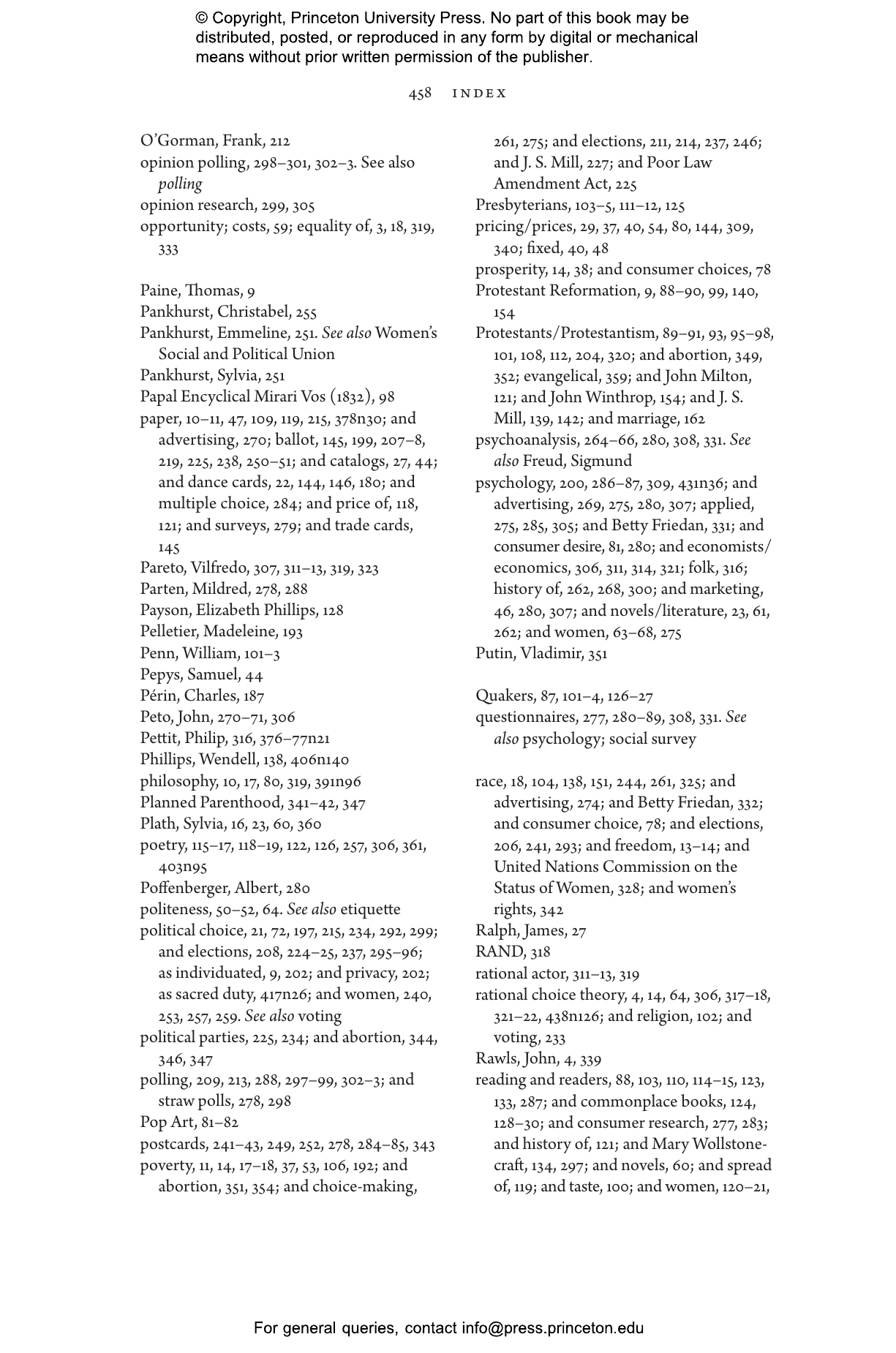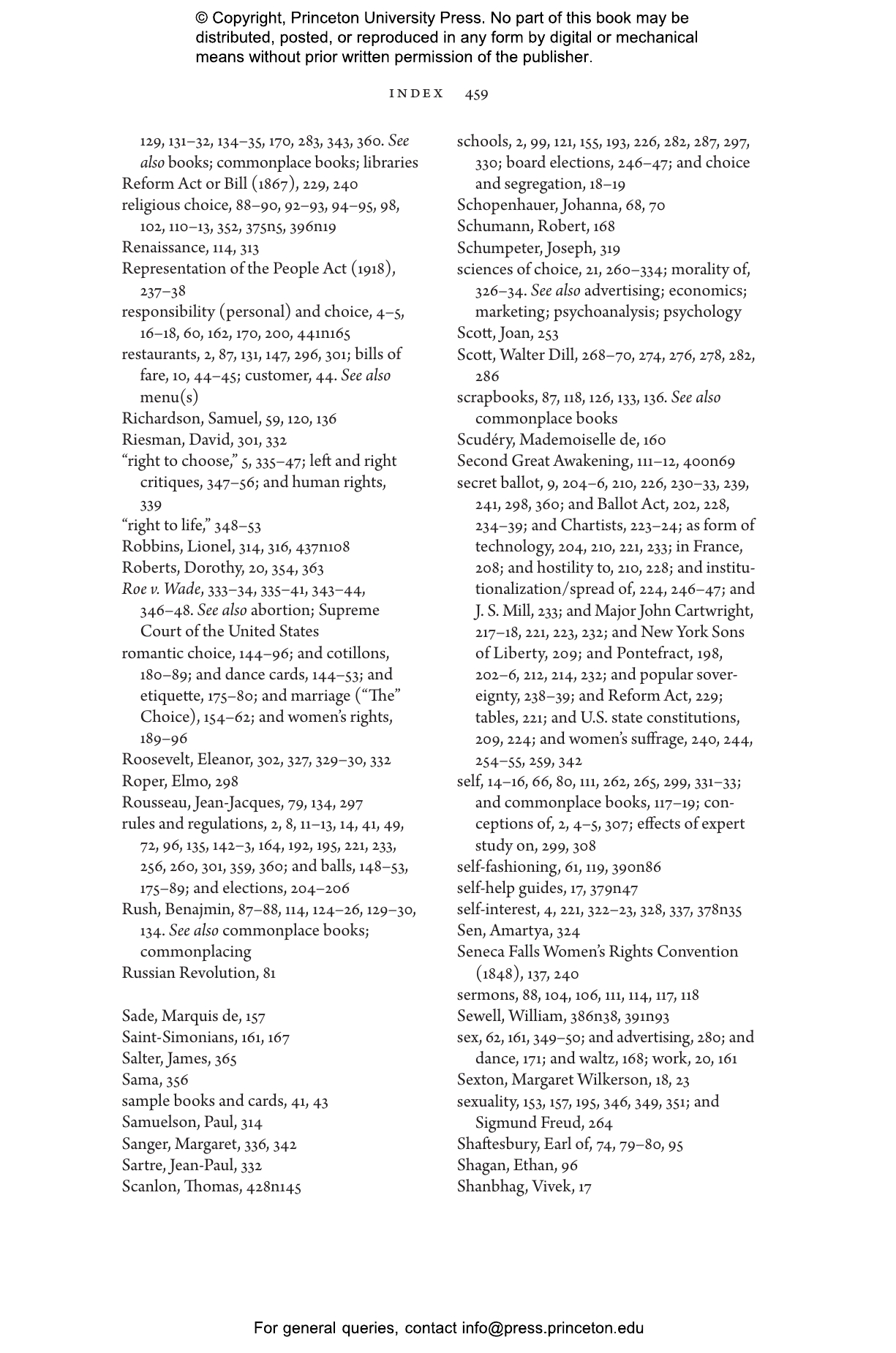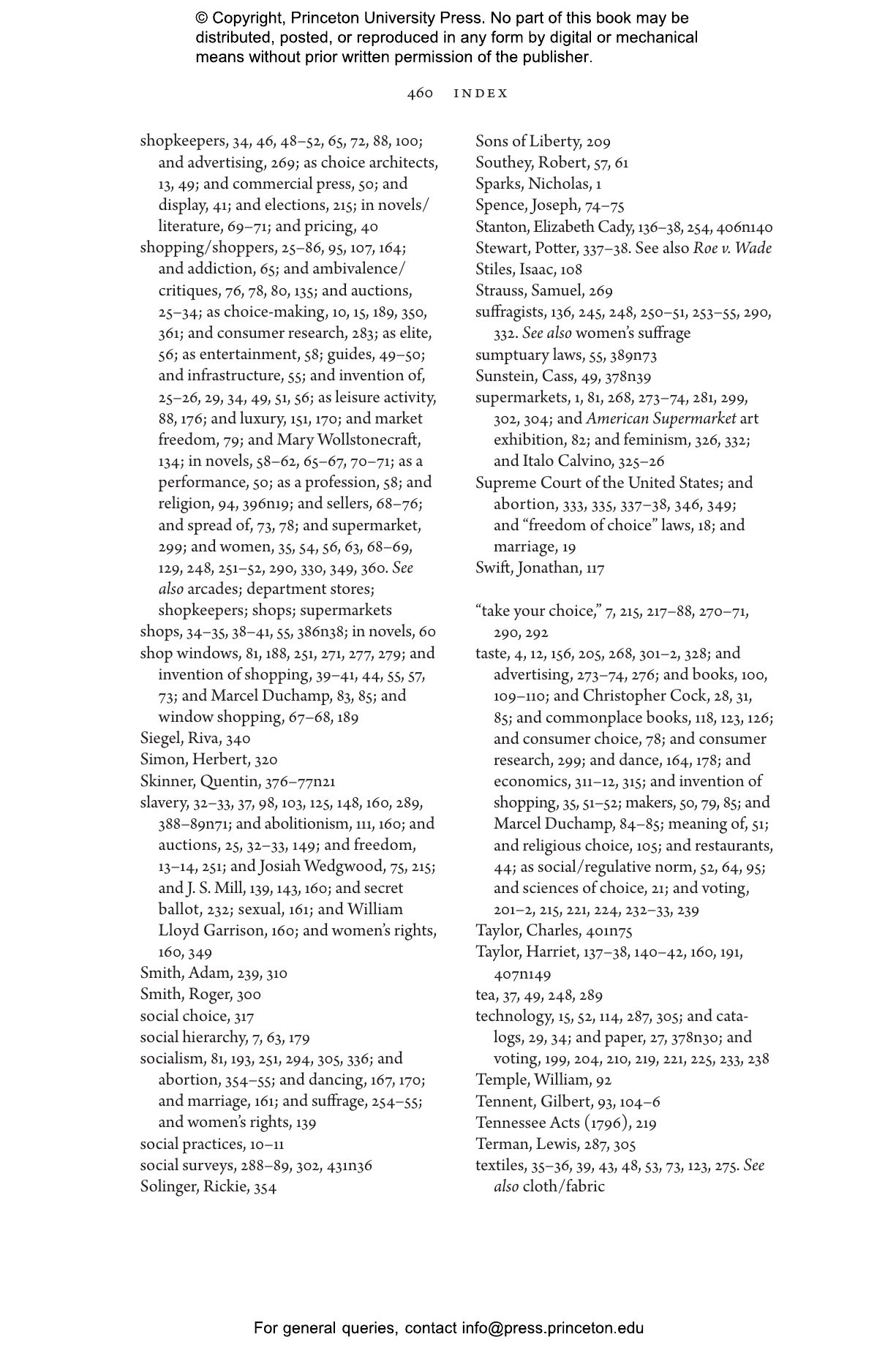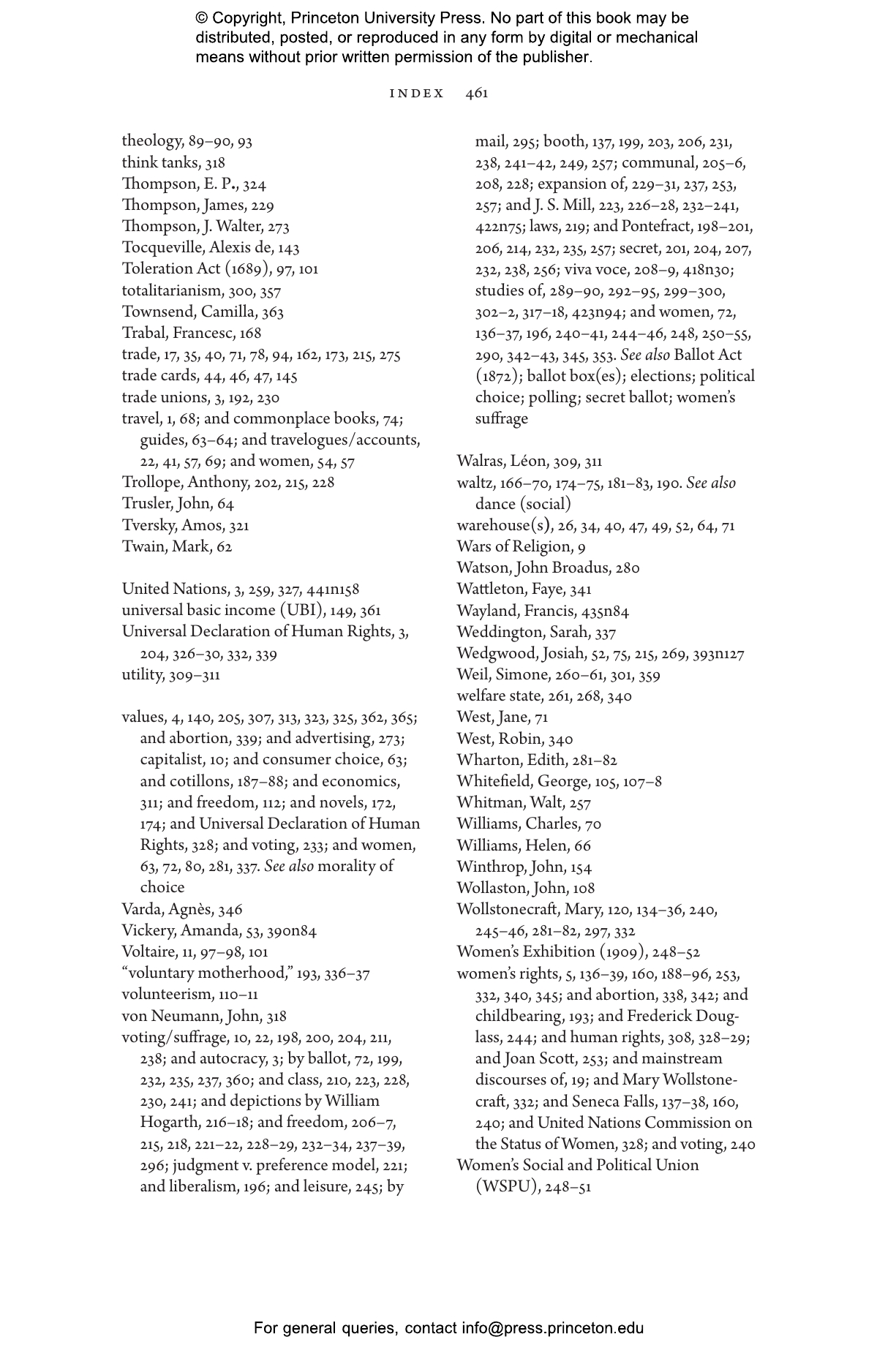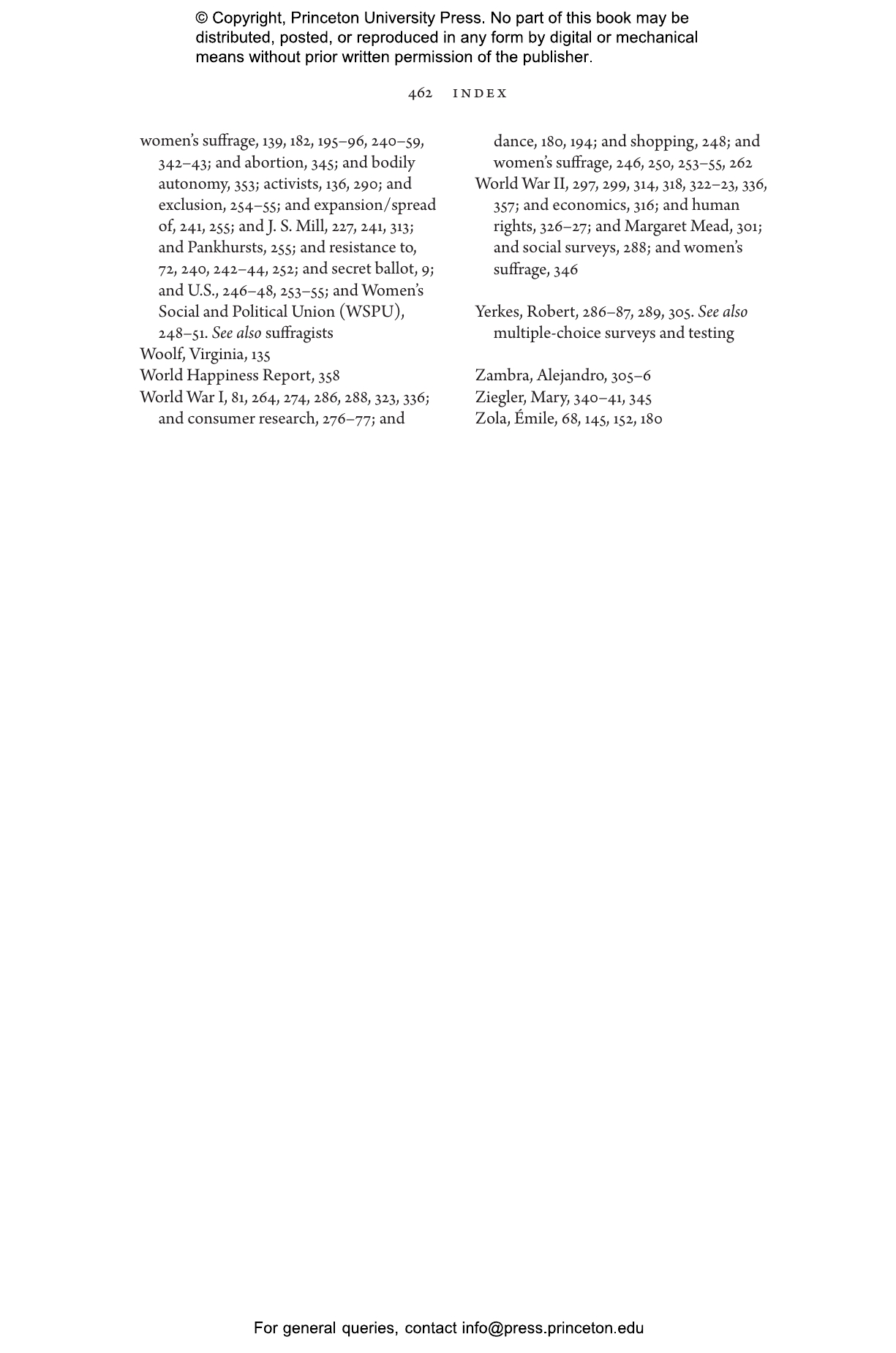Choice touches virtually every aspect of our lives, from what to buy and where to live to whom to love, what profession to practice, and even what to believe. But the option to choose in such matters was not something we always possessed or even aspired to. At the same time, we have been warned by everybody from marketing gurus to psychologists about the negative consequences stemming from our current obsession with choice. It turns out that not only are we not very good at realizing our personal desires, we are also overwhelmed with too many possibilities and anxious about what best to select. There are social costs too. How did all this happen? The Age of Choice tells the long history of the invention of choice as the defining feature of modern freedom.
Taking readers from the seventeenth century to today, Sophia Rosenfeld describes how the early modern world witnessed the simultaneous rise of shopping as an activity and religious freedom as a matter of being able to pick one’s convictions. Similarly, she traces the history of choice in romantic life, politics, and the ideals of human rights. Throughout, she pays particular attention to the lives of women, those often with the fewest choices, who have frequently been the drivers of this change. She concludes with an exploration of how reproductive rights have become a symbolic flashpoint in our contemporary struggles over the association of liberty with choice.
Drawing on a wealth of sources ranging from novels and restaurant menus to the latest scientific findings about choice in psychology and economics, The Age of Choice urges us to rethink the meaning of choice and its promise and limitations in modern life.
"Historian Sophia Rosenfeld offers a rich, compelling account of how the experience of choosing ceased to be the object of suspicion and condemnation and became instead the hallmark, at least in liberal, democratic societies, of any life worth living."—Stephen Greenblatt, New York Times
"Perceptive and nimble. . . . Rosenfeld has a knack for zooming in on seemingly ordinary objects, interpreting them in unexpected ways, and using them to reframe our picture of the modern world. . . . In The Age of Choice, she assembles an eclectic mix of everyday objects like menus alongside social practices like ballroom dancing, political debates about issues like voting rights, and high philosophy, reading those varied texts to piece together the story of the ideology of choice."—Andrew Lanham, New Republic
"I love this book. I really think this is a great book . . . . She’s a very good writer."—Alexandra Schwartz, New Yorker’s Critics at Large podcast
"It’s a good book. Rosenfeld’s a really good writer."—Vinson Cunningham, New Yorker’s Critics at Large podcast
"An important story, but one that remained largely hidden. . . . The Age of Choice wants to suggest a way forward out of our present dilemmas. What it has accomplished is to show, with brilliance and originality, just how deep those dilemmas are."—David A. Bell, New York Review of Books
"Excellent . . . very insightful. . . . [The book is] an invitation to think about the way our nature as choosers interacts with social and economic forms throughout history."—Paul Schofield, Jacobin
"Book reviewers often say a particular work should be ‘required reading,’ as if all of us were still subject to syllabi. But you have a choice, dear reader. Are you suspicious of the spread of the language of “choice” from one end of the political spectrum to the other? Are you dissatisfied with the choices on offer? Do you yearn to choose otherwise, or to refuse to choose? Then choose Rosenfeld!"—Henry Cowles, Los Angeles Review of Books
"An immensely informative and engaging account of how the concept took hold, evolved, and spread throughout the world. Drawing on an extraordinary array of sources, Rosenfeld examines the emergence of choice in shopping, romantic life, politics, and human rights declarations; the different implications of choice for women and men; interpretations of choice by psychologists and economists; and the ways in which ‘choice architects’ have capitalized on, manipulated, and constrained the practice of ‘autonomous’ decision-making."—Glenn Altschuler , Psychology Today
"At a time when we are awash with options—indeed, drowning in them—Rosenfeld’s analysis of how our modern idea of ‘freedom’ became bound up in the idea of personal choice feels especially timely, touching on everything from politics to romance."—The Millions
"This first-rate study of choice and freedom will appeal to most history lovers."—Library Journal (Starred review)
"With great mastery, [Rosenfeld] traces the enormous changes that have reshaped the Western world, and not only the Western world, over the last two and a half centuries. Combining stylistic verve with analytical acuity, she dissects a series of issues as varied as they are complex within which the concept of choice has changed: from the birth of capitalism to freedom of religious conscience, from consent in sexual relations to universal suffrage… The Age of Choice is anything but a celebration of freedom of choice as unconditional progress. Rather, it highlights the paradoxes and contradictions that have accompanied its almost undisputed triumph."—Francesca Trivellato, Il Sole 24 Ore
"Rosenfeld is engaging and illuminating. . . . We can be grateful that she has given us the long historical perspective that prompts us to rethink the role of choice in our lives."—Victoria Kahn, Times Literary Supplement
“This is a book of astonishing insight by one of America’s most talented historians. Rosenfeld has that rare capacity to remove scales from our eyes and compel us to confront what we had failed to see. Readers will have no choice but to be enthralled.”—Darrin M. McMahon, author of Equality: The History of an Elusive Idea
“A fascinating exploration of how Western society has come to prioritize the freedom to choose everything from our leaders to our meals to what happens to our bodies. Rosenfeld’s insightful analysis is sure to change the way you think about having options.”—Katy Milkman, author of How to Change: The Science of Getting from Where You Are to Where You Want to Be and host of the podcast Choiceology
“Combining philosophical sophistication with ingenious social history, Sophia Rosenfeld has given us a tour de force on the modern history of the changing relation between ideas about choice and freedom. We tend to think, like fish not knowing they live in water, that current attitudes about choice and freedom have always been with us. Rosenfeld disabuses us of this idea most elegantly and persuasively.”—Barry Schwartz, author of The Paradox of Choice: Why More Is Less
“Making choices has become the cramped and controversial meaning of being free in the contemporary world. This magnificent and original book is a mirror revealing who we are and how we got that way, in how we think about markets and politics, beauty and love, indeed being human itself. For holding the mirror up—and proposing that the alternative to choice is not necessarily constraint but a different kind of freedom—Sophia Rosenfeld deserves our deepest thanks.”—Samuel Moyn, author of Liberalism against Itself: Cold War Intellectuals and the Making of Our Times
“Every so often a book comes along that suddenly makes you realize that what you thought was a simple given is actually a phenomenon with a complex and problematic history. The Age of Choice is just that kind of book. With sparkling insights, rich illustrations, and beautiful writing, Rosenfeld demonstrates how modern societies have made the ability to choose the hallmark of freedom, whether in the marketplace, in ideas and belief systems, in courtship, in voting, in feminist and other rights-oriented politics, or in the social and behavioral sciences. But as we learn from Rosenfeld, this equation of choice with freedom can often exclude rather than empower.”—Lizabeth Cohen, author of A Consumers’ Republic: The Politics of Mass Consumption in Postwar America
“Sophia Rosenfeld’s elegantly written, accessible, and compelling new book traces how the concept of choice came into being and became central to self-making in our time. Through varied accounts of how people decided what to buy, how voting became a protected form of choosing, and how reproductive rights became a matter of choice, The Age of Choice illuminates the link between selfhood and freedom that we take to be self-evident. It offers a fresh and insightful account of how modern liberalism came to be.”—Carolyn J. Dean, author of The Self and Its Pleasures: Bataille, Lacan, and the History of the Decentered Subject


